Bain Case Interview: Process, Criteria & Preparation (2024)
Bain & Company are among the top three largest and most prestigious management consulting firms and ranked as the best consulting firm to work in by Glassdoor. To land the desirable offer from Bain&Co, the candidates must pass the stressful yet compelling consulting interviews known as the Bain case interview .
In this article, we willl walk you through the fundamentals, techniques, tips and tricks you can use to ace the Bain case interview in an effective way.

What is Bain case interview?
Bain case interview is a screening tool used in Bain interviews to evaluate a candidate's problem-solving and analytical skills . It is used to predict how well the candidate may perform as a consultant if they are hired. This assessment typically takes 40 to 60 minutes and can consist of multiple cases.
Bain case interviews are candidate-led . In this format, candidates are expected to lead the case by breaking down problems, hypothesizing the root causes , and collecting data from the interviewer to test their hypotheses. Candidate-led case interviews, therefore, are less structured than McKinsey’s interviewer-led , in which the candidate must answer given questions instead of deciding their own approach.
To gain a better understanding of the Bain case interview format, here are some important features of candidate-led case interviews to keep in mind:
- Candidate-led cases focus on one big problem . In these cases, you solve the problem as a whole, instead of addressing it through each question like in interviewer-led cases.
- Candidate-led cases are more flexible : You are free to analyse the problem in the way you think is best.
- Candidate-led cases focus less on giving the right answer : There is a large margin of errors allowed as you have very little assistance from the interviewer.
Another consulting firm using the candidate-led case interviews is BCG. Learn more about this interesting case interview format in our Complete Guide to BCG Case Interview .
When does Bain case interview take place?
Bain case interviews are the third stage of the company's hiring process. The hiring procedure is divided into three stages: Application ⇒ Online tests ⇒ Interviews . The whole process usually takes between 4 and 6 weeks, with usually 14 days between phases. Each level of Bain's selection is described briefly below:
Stage 1: Application
The first stage of Bain’s hiring process is resume and cover letter screening . Usually, candidates can apply via Bain online application form , allowing them to collect all the data quickly and easily, as well as submit any necessary documents. Check out Bain's FAQs for more credible information about the application round.
The resume and cover letter should showcase your consulting attributes, and qualities Bain looks for, apart from educational background or work history. You can equip yourself with guidelines and templates for a perfect consulting resume with our Complete Guide to Consulting Resume .
Stage 2: Online tests
After submitting your application form, you will progress to Bain Online Tests. The Bain Online Test, sometimes known as the Bain Online Assessment, is a set of pre-interview screening tests used by Bain & Company, assessing skills and traits necessary for consulting work: cognitive abilities, problem-solving skills, or cultural fit.
Bain Online Tests is not uniform across offices worldwide. The question types, format, and design can vary from place to place. Fortunately, most tests' format and underlying purposes at different Bain offices are similar. The common tests are:
- Aptitude test
- Analytical test
- Business case test
- Personality test
- One-way video interview
You can dive deeply into the fundamentals of each one and practice common question types in our Bain Online Test Overview .
Stage 3: Interviews
Typically, the Bain Interview process consists of 2 interview rounds : the first conducted by junior consultants or managers, and the second carried out by Bain partners to make a final decision. Both rounds include 2 common types of interviews:
- Fit interview : often lasts 10-15 minutes, assessing a candidate’s experience, competencies, motivations as well as personality fit.
- Case interview : often lasts 30-45 minutes each, up to 6 case interviews, and usually divided into 2 rounds.
/case_thumb/1673337093159_bain_case_interviews_1.png)
What does Bain & Co look for in a candidate?
According to the Bain official website, the 4 qualities that the company seeks in a candidate are:
Problem-solving skills
This is one of the core values of a Bainee, yet a consultant in general, as they constantly find pragmatic solutions for clients. Therefore, the company is trying to find a candidate with the ability to analyze problems and resolve any problem efficiently and systematically.
The ability to lead
Bain employees must be able to manage individuals from diverse backgrounds and create a sense of belonging where everyone can perform to their full potential. When applying to Bain, emphasize how you've been a leader in the past, whether at work, school, or via extracurricular activities.
Results delivery
Bain is proud of its legacy of offering solutions that have a positive, quantifiable impact on our customers' objectives and reputations. Thus, they want to hear how you've made an impact in your previous work, along with significant results to an organization, project or team's success.
Candidates who push themselves to be exceptional and have the ability to motivate others are sought after by Bain. Throughout the selection, you should showcase your enthusiasm for the job, willingness to contribute, and entrepreneurial drive spirit.
Five steps to approach a Bain case interview
Though the question types in Bain case interviews might vary, there is a standard process that you can apply for any case you encounter: Taking notes ⇒ Clarifying ⇒ Structuring ⇒ Hypothesizing ⇒ Pitching .
Taking notes
You will be given the case background at the beginning of a case interview. Make sure you pay attention to every piece of information interviewers give you, and t ake careful notes of key details about the client, the problem they are facing, and the objective they want to achieve. Moreover, keep your notes neat and organized to ease the storing and arranging information.
To get a case interview going in the right direction, it's crucial to ask the appropriate clarifying questions . If you skip this important step, you can misinterpret the objective, the business context, or technical terms. Make sure there is nothing unclear or unfamiliar before attempting to solve any case.
Structuring
In a case interview, structuring is breaking down a complex business problem into smaller components , allowing you to solve it more efficiently and professionally. Below are several helpful techniques to stay organized:
- Keep the map habit : The map habit means regularly and explicitly checking where you are and where you're doing next. It also makes you sound structured and organized, which is a defining characteristic of a consultant and will immensely impress the interviewer. One helpful trick is to pause at each step.
- Number your items : Numbering each item is a simple and efficient method to make your pitches sound organized. The formula is straightforward: "There are the items I want to discuss, they are: No.1... No.2... No.3...". This habit also creates an impression of MECE , a key principle in solving case interviews.
- F ocus on the big problem : If you feel like you're "derailing," check your progress on the issue tree and get back on track right away. Make sure that whatever you do, doesn't deviate from the main problem.
To learn more about how to keep structured, and different frameworks to approach case interviews, check out our Case Interview Guidebook .
Hypothesizing
To solve the client's issue, you must now develop a working hypothesis , which is an educated guess based on evidence and available data. Since you will be gathering information and testing your idea continuously, it need not be the final, definite solution to the problem. Along the way, your hypothesis will be refined and most answers the question.
A closing pitch is the summary of all your findings and delivery of recommendations to the client CEO. Your final pitch, regardless of the wording, must include these 4 factors:
- Introduction / Lead-in
- Summary of the root causes
- Summary of the solutions
Throughout the solving process, you can apply some helpful tips below to optimize your performance:
/case_thumb/1673337089872_bain_case_interviews.png)
Bain case interview practice example
To excel in Bain case interview, you should familiarize yourself with common question types, especially candidate-led case interviews. Below is a comprehensive candidate-led example case from our Case Interview End-to-End Secrets Program , which thoroughly examines sample cases and uncovers step-by-step guidelines!
Bain also provides official case interview practice materials in their website. Let’s try out some of examples from the company:
- Coffee Shop Co.
- Associate Consultant Mock video
If you want to practice more example cases, discover instant-result tips and techniques for Bain case interviews, check out our Case Interview End-to-End Secrets Program . Besides mock cases and video guides, we also provide fundamental theory and intuition exercises to develop your case interview expertise!
Bain written case interview
Bain written case interview is an extension of the regular case interview. In this case interview, you will be given 20+ powerpoint slides that provide a client's situation. Before the interview begins, there will be about 55 minutes to review the slides, highlight key information, and script your suggestion(s) into slides. Then you'll have about 40 minutes to pitch your ideas.
Bain written case interview is required for applicants to specific roles . Bain uses this case interview format to assess your comprehension of written information , as a large amount of clients' data is in the form of reports and documents. Also, a written case interview requires you to summarize your results in slides and then deliver them logically , which are parts of consulting work.
How to prepare for Bain case interview
Familiarize with candidate-led case examples.
To become familiar with Bain candidate-led case interviews, you can watch official examples from Bain itself,
or practice further examples with MConsultingPrep’s coaching service. Book a mock case interview with former consultants from MBB and other prestige consulting firms. Our experts will provide you "quality" practice with reliable case interview resources and actionable feedback to help you ace every case!
Practice consulting math
Consultants need to deal with a huge amount of quantitative data, so consulting math skill is a must. Here are some tried-and-true methods for making math practice easier and producing better outcomes:
- Use Your Head : Do all your daily calculations mentally unless an EXACT answer is required.
- Flatten the Learning Curve : At the start, a piece of scratch paper and a 5% margin of error really help; once you are confident, discard the paper and narrow down the margin.
- Establish a Routine : Allocate some time for daily practice this may seem hard at first, but once you’ve overcome the inertia, you can literally feel the improvement.
Develop business intuition
Having business intuition makes you a much better candidate for case interviews. Improving business intuition is a gradual process; start early, practice every day and be patient. Step by step, these business insights will become ingrained in your instinct. There are 2 ways to sharpen your business intuition:
- Written Sources : It's a good idea to read business papers every day. You can also find excellent articles on the McKinsey , Bain , and BCG websites. Be careful, though, because the important thing is not how many pages you read but what you learn from them.
- First-hand Experience and Observations : Don't just show up to work; try to figure out what the senior managers are doing, the reasoning behind each decision they made, and how it has affected the organization.
Learn the basics and frameworks
To ace Bain case interviews, it is crucial to have a good grasp of the basics and structured approaches. Case interview principles like hypotheses , MECE , issue tree , and other frameworks are the backbone of any case, so make sure you master the use of those fundamental knowledge.
Equip yourself with basic terms, concepts, and problem-solving fundamentals in our in-depth Case Interview Guidebook .
Perform mock interviews
To familiarize yourself with common question types and improve your performance in case interviews, one proven way is to practice as many mock cases as possible. Find a former consultant to support your practice; they've been through numerous case interviews, both real and mock, so apparently understand what's expected of a candidate. Book a coach now to ease up your practice process!
During your practice, take time to study and review your cases thoroughly. Along the way, ask consulting experts for reliable feedback on your performance, take careful notes of your coach’s comments, and focus on the areas of improvement.
Bain Fit interview
What is bain fit interview.
Bain fit interview covers a wide range of questions designed to assess a candidate’s experience, skills, motivations as well as personality fit . The questions are divided into 2 types: traditional resume questions to better understand the candidates, and behavioral questions examining past experiences and how candidates handled them.
Long ago, consulting fit interviews were viewed as "just procedure" by interviewers and were only a small component of the consulting recruitment process. However, Bain fit interview is now drawing a lot of attention as it can demonstrate personal motivations and soft skills , the secret ingredients of a successful consultant.
Bain fit interview questions
Bain fit interview questions are classified into 2 common types: Why-our-firm questions and Personality questions . Let's look at several samples and learn how to ace each question type!
Why-our-firm questions
This question type can be asked under the form of:
- Why are you joining the consulting industry?
- Why are you interested in Bain?
Almost any employer, not just consulting firms, would ask you something like that. They want to ensure you won't leave once you've become helpful to the company. The ideal response should cover 4 characteristics: unique, specific, authentic, and appropriate . You can check out our comprehensive article about Bain Fit Interview to learn how to best demonstrate each factor.
Personality questions
Personality questions is the least predictable and can vary from interview to interview; however, there are 3 topics that do come up repeatedly: Hobbies and interests; Workplace preferences; and Values & plans/traits & skills . Below is a table including examples and suggested approaches for each topic:
/case_thumb/1673337090774_bain_case_interviews_2.png)
Scoring in the McKinsey PSG/Digital Assessment
The scoring mechanism in the McKinsey Digital Assessment
Related product
/filters:quality(75)//case_thumb/1669783363736_case_interview_end_to_end_secrets_program.png)
Case Interview End-to-End Secrets Program
Elevate your case interview skills with a well-rounded preparation package
The Bain SOVA test is a tailored aptitude test used by UK/EU Bain offices to measure numerical, verbal, and logical reasoning, as well as your personality
The Bain Online Test is a collection of unrelated pre-interview tests used by Bain & Company, most of which are standardized tests with varying difficulties.
At Bain & Company, entry-level consultants may earn up to $120,000/year, while senior ones have salaries up to $230,000 (bonuses and profit sharing included)
Bain Case Interviews: A Comprehensive Preparation Guide
Are you preparing for a Bain case interview? Look no further! Our comprehensive guide covers everything you need to know to ace your interview and land your dream job at Bain.
Posted June 12, 2023
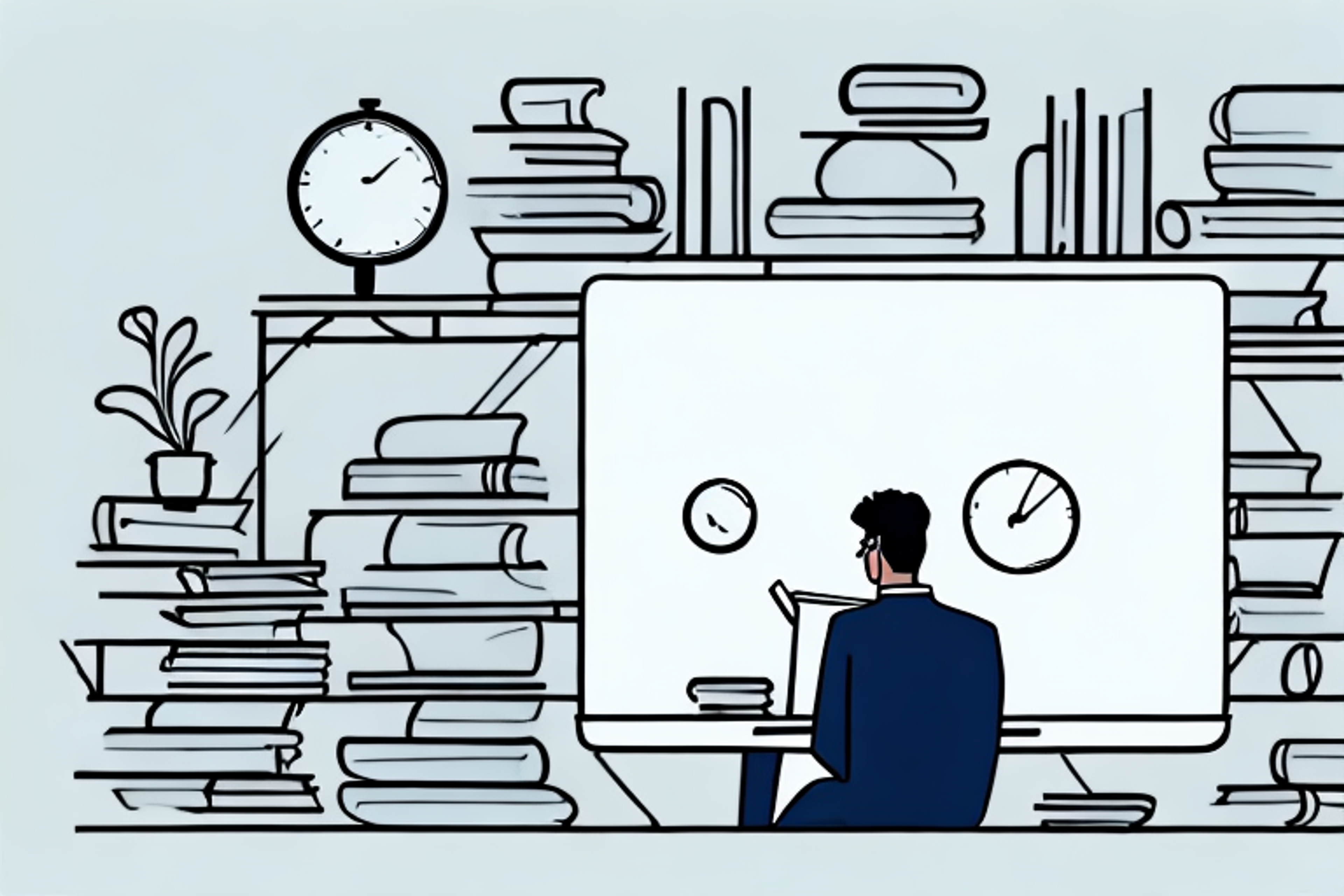
Consulting Week (Apr 15-18)
Monday, april 15.
10:00 PM UTC · 60 minutes
Table of Contents
If you're looking to land a consulting job at Bain, you're likely aware of the importance of case interviews. In fact, you could say that they're the bread and butter of the entire interview process. That's why it's essential to prepare for these types of interviews. This comprehensive guide will walk you through everything you need to know about Bain case interviews, from the structure to common mistakes to how to build a framework, so you can approach them with confidence.
What are Bain Case Interviews?
Bain case interviews are a specific type of interview used to assess problem-solving skills and other competencies relevant to consulting. They involve being presented with a scenario or problem and being asked to work through it with the interviewer in a structured and logical way. These interviews are typically conducted in-person and can last anywhere from 30 minutes to a few hours.
During a Bain case interview, the interviewer may also be assessing your ability to communicate effectively, think creatively, and work collaboratively. It is important to not only demonstrate your problem-solving skills but also your ability to explain your thought process and work well with others. Additionally, Bain case interviews may include both quantitative and qualitative components, so it is important to be comfortable with both types of analysis.
Why Bain Case Interviews are Important for Consulting Jobs?
Case interviews are the primary way that consulting firms assess candidates' problem-solving abilities and other skills necessary for consulting jobs. In a consulting career, your ability to solve complex problems and provide innovative solutions is essential. These skills are tested in Bain case interviews to see how well you can apply theoretical knowledge to real-world business situations.
Moreover, Bain case interviews also evaluate your communication and interpersonal skills. As a consultant, you will be working with clients from diverse backgrounds and industries. Therefore, it is crucial to demonstrate your ability to communicate effectively and build relationships with clients during the case interview process.
Additionally, Bain case interviews provide a glimpse into the consulting firm's culture and values. The case interview process allows candidates to interact with current consultants and understand the firm's approach to problem-solving and client management. This insight can help candidates determine if Bain is the right fit for their career goals and aspirations.
Free trial!

From 91 top coaches
Access a library of videos, templates, and examples curated by Leland's top coaches.
Example resumes.

Example Cases

Casing Drills
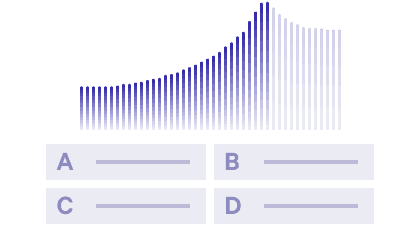
Mock Interviews

The Structure of Bain Case Interviews
The structure of a Bain case interview typically involves three main parts: introduction, analysis, and conclusion. The introduction sets the stage for the problem at hand, the analysis is where you work through the problem, and the conclusion is where you present your findings and recommendations.
During the introduction, the interviewer will provide you with a brief overview of the case and the problem that needs to be solved. This is your opportunity to ask any clarifying questions and to make sure you fully understand the problem before moving on to the analysis phase.
The analysis phase is where you will spend the majority of your time in the case interview. This is where you will use your problem-solving skills to break down the problem into smaller, more manageable parts. You will need to use a combination of quantitative and qualitative analysis to come up with a solution to the problem.
How to Prepare for Bain Case Interviews?
To prepare for Bain case interviews, you must have a deep understanding of business concepts, analytical thinking, and problem-solving. You can prepare for these types of interviews by practicing with case studies, working on your math and communication skills, and building your business knowledge. It's also a good idea to understand the interview format and structure so you can prepare effectively.
One effective way to prepare for Bain case interviews is to seek guidance from experienced professionals in the field. You can reach out to alumni or current employees of Bain to gain insights into the interview process and learn about their experiences. Additionally, attending networking events and career fairs can provide you with opportunities to connect with professionals and gain valuable advice.
Another important aspect of preparing for Bain case interviews is to stay up-to-date with current events and industry trends. This can help you to develop a broader perspective on business issues and demonstrate your ability to think critically and creatively. Reading business publications, attending conferences, and participating in online forums can all be helpful in staying informed and building your knowledge base.
Although not directly pertaining to case interviews, you should also be able to answer the question "Why Bain?" Take a look at this article to craft a strategic, yet genuine response that captures your passion for the firm and experience in an impactful way.
Bain Case Interview Tips and Tricks
When it comes to case interviews, there are a few tips and tricks you can use to be successful. For example, always clarify the problem before diving into a solution. Make sure to break down the problem into smaller pieces to make it more manageable and clear up any ambiguity. Also, be sure to communicate your thought process and assumptions with the interviewer.
Another important tip is to use frameworks to structure your analysis. Frameworks provide a systematic approach to problem-solving and help you organize your thoughts. It's also important to prioritize your analysis and focus on the most critical issues first. This will help you make the most impact in the limited time you have.
Lastly, don't forget to practice, practice, practice! The more case interviews you do, the more comfortable you will become with the format and the better you will perform. You can practice with friends, colleagues, or even online resources. Remember, preparation is key to success in case interviews.
Common Mistakes to Avoid During Bain Case Interviews
There are a few common mistakes that candidates make during Bain case interviews that can hurt their chances of success. For example, rushing through the problem, not asking clarifying questions, and failing to communicate effectively can all negatively impact your performance. It's essential to be aware of these mistakes and take steps to avoid them.
Another common mistake that candidates make during Bain case interviews is not structuring their approach to the problem. It's important to take a structured approach to the problem, breaking it down into smaller parts and analyzing each part systematically. This will help you to identify the key issues and develop a clear and logical solution. Additionally, candidates often fail to demonstrate their problem-solving skills effectively. It's important to explain your thought process and reasoning behind your solutions, as this will demonstrate your analytical abilities and help you to stand out from other candidates.
How to Build a Framework for Bain Cases
A framework is a structured approach to breaking down a problem and analyzing it effectively. To build a framework for Bain cases, you should start by clarifying the problem and then breaking it down into smaller pieces. From there, you can work through each piece individually to ensure that you're covering all aspects of the problem thoroughly.
It's important to keep in mind that your framework should be flexible and adaptable to different types of cases. You should also consider incorporating relevant data and industry knowledge into your analysis. Additionally, it's helpful to practice building frameworks for different types of cases to improve your skills and efficiency in case interviews.
Analyzing the Information in Bain Cases
To analyze information in Bain cases effectively, you need to be able to identify relevant information, prioritize it, and use it to develop a hypothesis about the problem at hand. It's essential to approach the problem logically and systematically, breaking it down into smaller pieces and analyzing each piece individually.
Additionally, it's important to consider the context in which the problem arose. Understanding the industry, market trends, and competitive landscape can provide valuable insights into the root cause of the problem. It's also helpful to gather data and conduct research to support your hypothesis and validate your findings. By taking a comprehensive approach to analyzing information in Bain cases, you can develop effective solutions that address the underlying issues and drive meaningful results.
Solving Quantitative Problems in Bain Cases
Quantitative problems often arise in Bain cases, and the ability to solve these types of problems is essential for success. To solve quantitative problems in Bain cases, you need a strong foundation in math and critical thinking, as well as the ability to apply these skills in a practical way to the given problem.
It is also important to have a clear understanding of the problem and the data provided. This involves breaking down the problem into smaller, more manageable parts and identifying any relevant information that can be used to solve the problem. Additionally, it is important to check your work and ensure that your solution makes sense in the context of the problem.
Developing Recommendations in Bain Cases
Once you've analyzed the problem, you need to develop recommendations based on your findings. To do this effectively, you should consider the potential outcomes of each solution and weigh the pros and cons. It's also essential to communicate your recommendations clearly and logically.
When developing recommendations in Bain cases, it's important to keep in mind the client's goals and objectives. Your recommendations should align with their overall strategy and vision for the company. Additionally, it's crucial to consider any potential risks or challenges that may arise from implementing your recommendations and have a plan in place to address them. By taking these factors into account, you can ensure that your recommendations are not only effective but also feasible for the client to implement.
The Role of Communication Skills in Bain Case Interviews
Communication skills are critical in Bain case interviews. Effective communication shows the interviewer that you're able to break down complex concepts and explain them in a clear and concise way. It also demonstrates your ability to listen actively and engage in a discussion.
Navigating Ambiguity and Uncertainty in Bain Cases
Bain cases are designed to simulate real-world business problems, which can be complex, ambiguous, and uncertain. To navigate ambiguity and uncertainty in Bain cases, it's important to be comfortable with incomplete information, be flexible in your thinking, and avoid making assumptions. Clarifying questions can also help you gather more information and clarify the problem.
Preparing for Behavioral Questions in Bain Interviews
Behavioral questions are commonly used in Bain interviews to assess your work experience, problem-solving skills, and other competencies. To prepare for behavioral questions, you should prepare specific examples that demonstrate your skills and competencies, and be able to communicate them effectively in an interview setting.
Practice Makes Perfect: Resources for Preparing for Bain Cases
There are many resources available to help you prepare for Bain cases, from online case studies to consulting books. It's important to practice different case types and study the solutions to understand how to approach them effectively.
What to Expect During the Actual Interview Day?
On the actual interview day, you can expect to have one-on-one interviews with Bain consultants or managers. These interviews will likely consist of case interviews and behavioral questions. It's essential to arrive early, dress appropriately, and be prepared to present your skills and competencies effectively.
In conclusion, Bain case interviews are an essential part of the consulting interview process, and it's crucial to prepare for them effectively. By understanding the structure, avoiding common mistakes, building a framework, and practicing effectively, you can approach these interviews with confidence and increase your chances of success.
For more expert tips on how to ace your next management consulting interview or position, delve into these resources:
- How to Prepare for IBM Management Consulting Case Interviews?
- Best 30 Free Resources to Get Into Management Consulting
- Five Tips to Break Into Management Consulting
- A Day in the Life of a Management Consulting Consultant
- How to Prepare for KPMG Management Consulting Behavioral Interviews
Browse hundreds of expert coaches
Leland coaches have helped thousands of people achieve their goals. A dedicated mentor can make all the difference.
Browse Related Articles
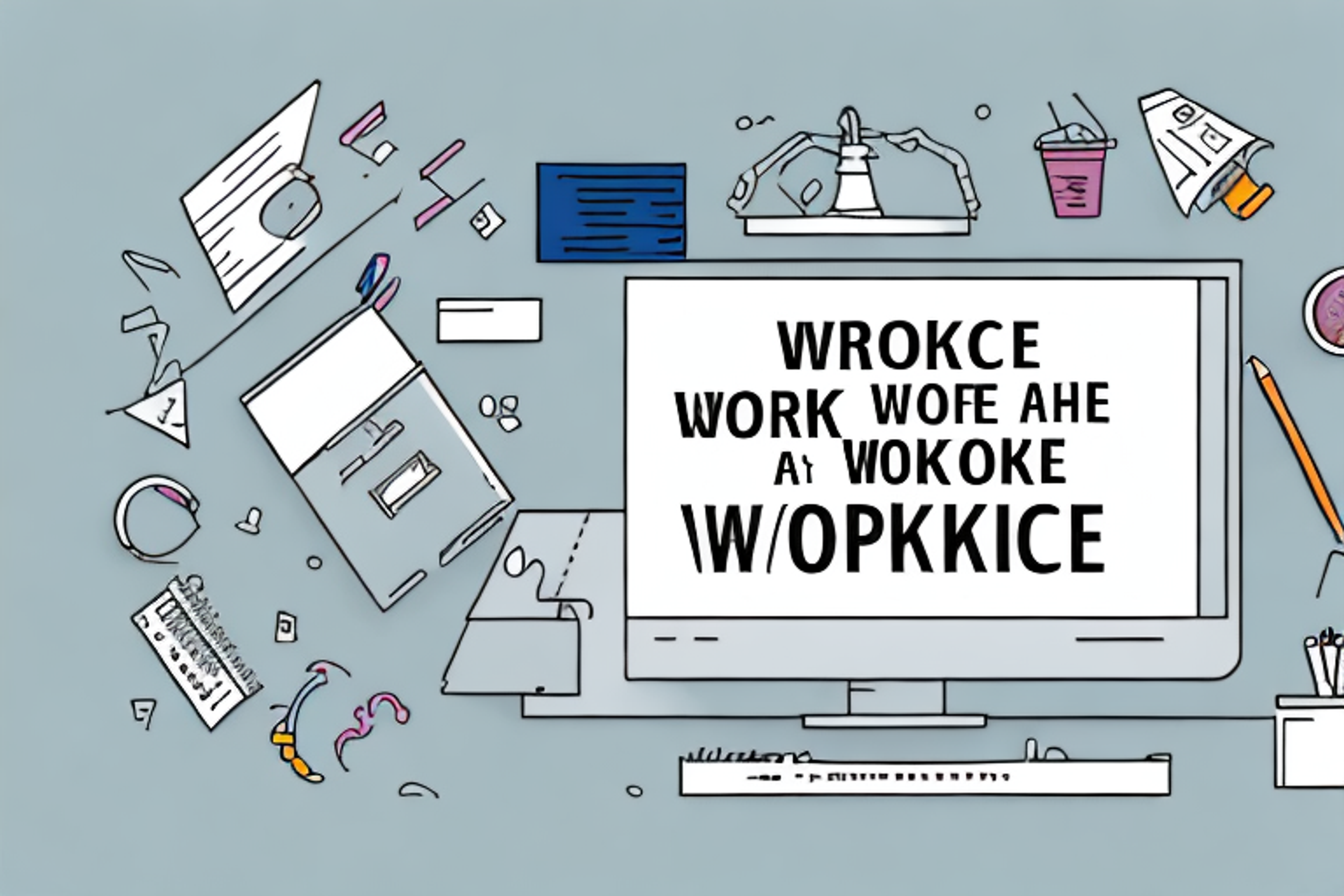
May 18, 2023
Bain Perks at Work: A Comprehensive Overview
Discover the many benefits of working at Bain & Company with our comprehensive overview of the Bain Perks at Work program.

June 8, 2023
A Comprehensive Guide to McKinsey Case Interview Preparation
Looking to ace your McKinsey case interview? Our comprehensive guide has got you covered! From understanding the interview process to mastering case frameworks, we provide expert tips and strategies to help you prepare and succeed.
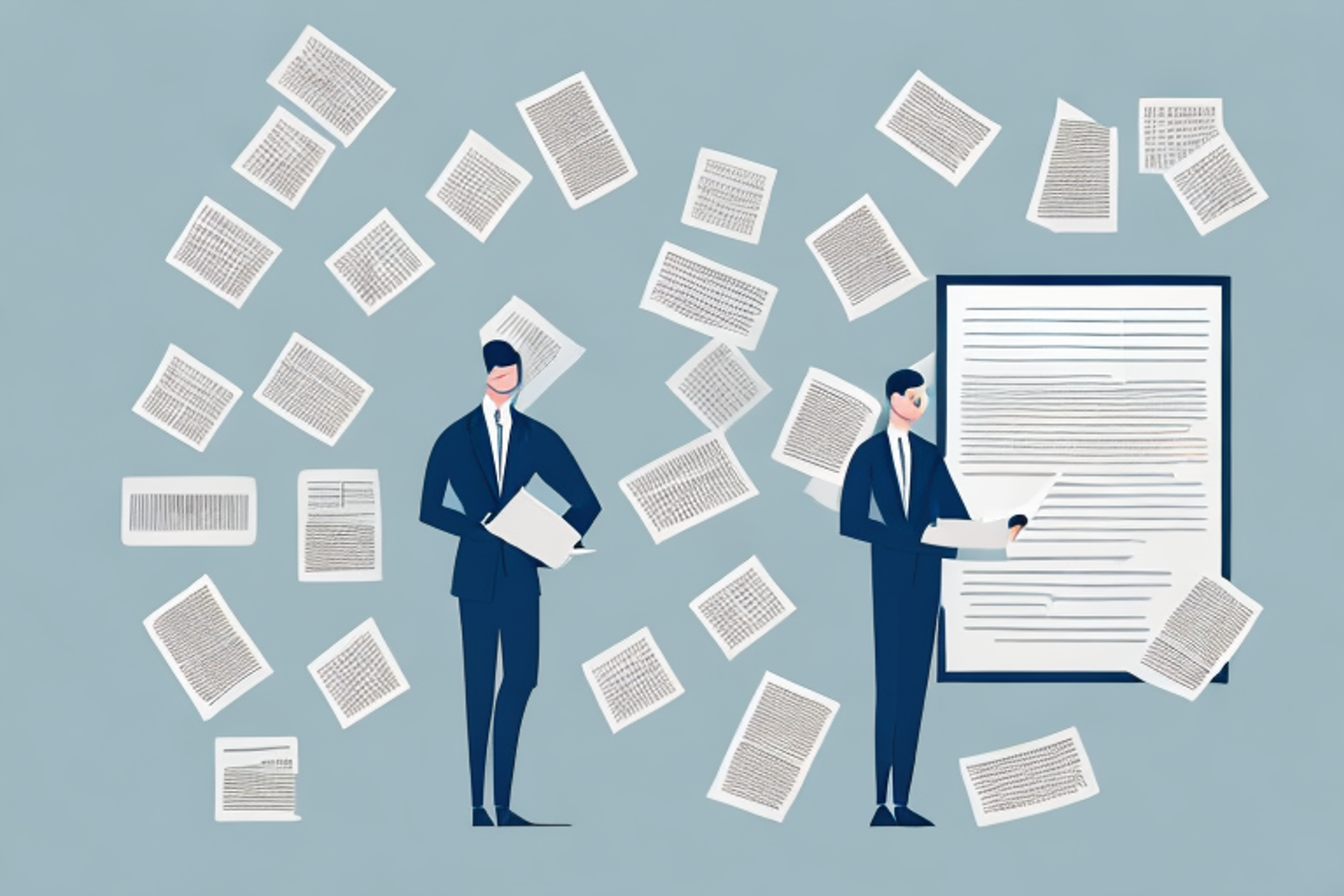
July 31, 2023
Mastering Consulting Case Frameworks: A Comprehensive Guide
Looking to excel in consulting case interviews? Our comprehensive guide to mastering consulting case frameworks is here to help! Learn the essential skills and strategies needed to ace your next case interview and land your dream consulting job.

May 11, 2023
IQVIA Case Study Interview: A Comprehensive Preparation Guide
If you're preparing for an IQVIA case study interview, this comprehensive guide is a must-read.

How to Prepare for Bain Management Consulting Networking Calls?
Learn how to ace your Bain management consulting networking calls with these expert tips and strategies.

Bain Associate Consultant Intern Program: What You Need to Know
If you're considering a career in consulting, the Bain Associate Consultant Intern Program is a great place to start.

How to Prepare for Bain Management Consulting Behavioral Interviews?
If you're preparing for a Bain management consulting behavioral interview, this article is a must-read.
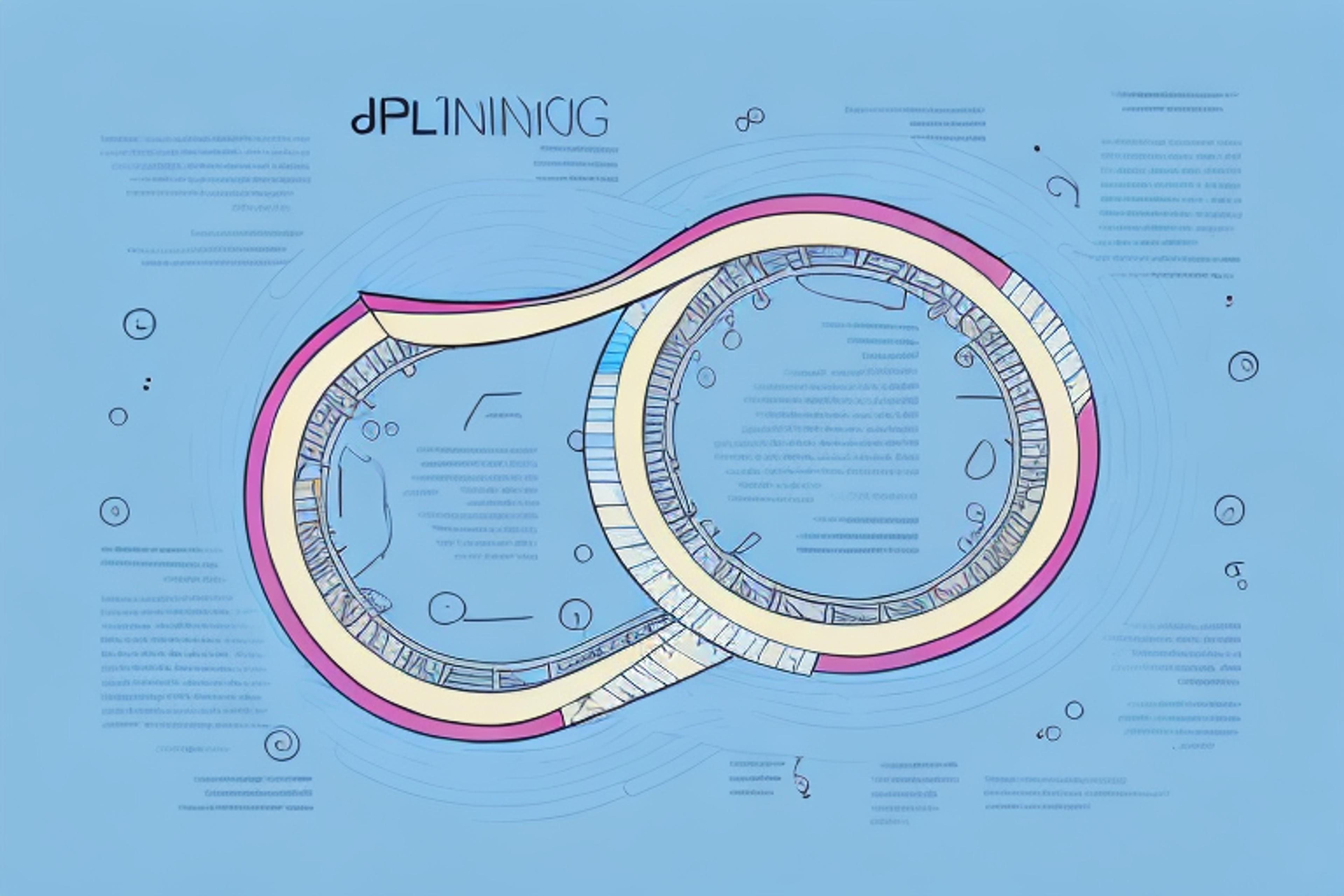
IQVIA Interview Process: A Comprehensive Guide for Success
Looking to ace your IQVIA interview? Our comprehensive guide covers everything you need to know to succeed, from the application process to common interview questions and tips for impressing your interviewer.

Navigating the Shift from Energy Sector to Management Consulting: An Insider's Guide
Are you considering a career shift from the energy sector to management consulting? Look no further than our insider's guide, filled with tips and insights to help you navigate this exciting transition.

Transportation to Management Consulting: An In-depth Look at How to Make the Transition
Are you considering a career change from transportation to management consulting? Look no further! Our in-depth article provides valuable insights and practical tips on how to successfully make the transition.

Transitioning from Media and Entertainment to Management Consulting: Key Considerations
If you're considering a career change from media and entertainment to management consulting, this article is a must-read.

Moving from Telecommunications to Management Consulting: Your Guide to a Successful Transition
Are you considering a career change from telecommunications to management consulting? This guide will provide you with the necessary steps and insights to make a successful transition.
Bain Case Interview Guide
Bain & Company is one of the three strategy consulting firms that make up the prestigious MBB (McKinsey, Bain, BCG). They are a global consulting firm with revenues of over $6 billion and 15,000 employees worldwide.
Every year Bain receives thousands of job applications for a limited number of jobs. The success ratio of applicants is less than 1% and the firm has a reputation for attracting the top talent from academia and industry .
- 1. What Bain is looking for
Bain’s employees all have strong academic records and so Bain looks beyond this and is open about the four key skills and traits they are looking for in candidates:
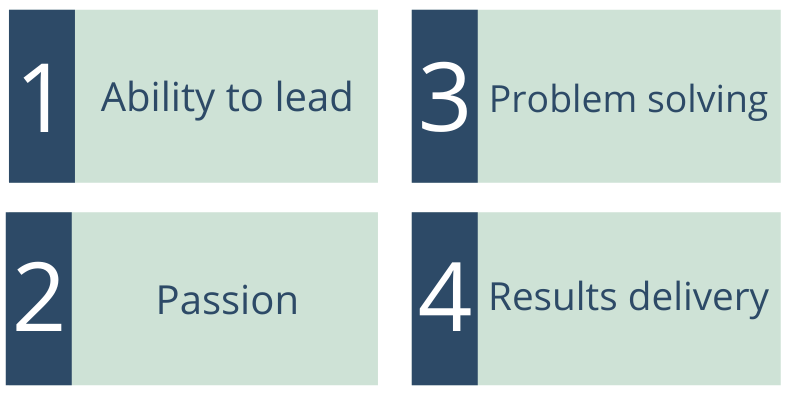
Ability to lead – Strategy often involves periods of uncertainty or imperfect information whereby consultants need to exercise judgment with confidence and lead others around them to find pragmatic solutions.
Problem-solving – Bain’s clients seek their help with complex problems and are looking for robust solutions that can be framed in a simple way. Candidates are expected to be comfortable creating and applying structured thinking from the outset.
Passion – Drive and enthusiasm will positively benefit individuals and their team in a strategy consulting environment, especially when exploring complex problems.
Results delivery – Bain are proud of their track record of achieving measurable impact on their clients and enabling them to meet their objectives. Demonstrating a focus on quantifiable achievements in your applications is important.
- 2. Bain Application Process
There are four stages to the Bain application process :
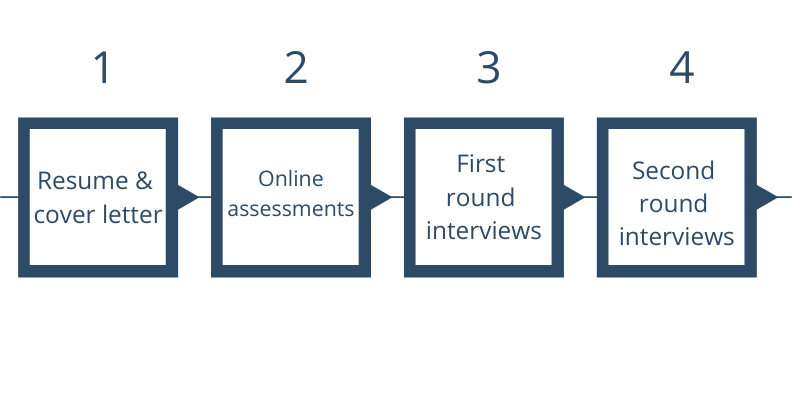
The first step of the Bain application process has been relaxed in recent years with more candidates being invited to the second stage before being filtered out. The resume and cover letter requirements are in line with the rest of consulting but the cover letter needs to be tailored to Bain rather than generic .
The online assessments consist of numerical reasoning questions, logical reasoning questions, and situational judgment tests. Bain has developed their own partnerships and tests for their candidate screening but they are similar to common tests seen at other employers .
The first-round interviews are similar to those at BCG, and are usually with a junior consultant (3-6 years experience), and are where you will first be tested with a case interview . You will typically have 2 interviews both starting with fit questions such as ‘ Why consulting? ’ or ‘Tell me about a time when…’ for the first 15 minutes and then followed by a 45-minute case interview .
The second round interviews follow the same structure as the first round interviews but are conducted by more senior members of the team , usually directors, junior or senior partners. These consultants will be more rigorous in their assessment and provide a final hiring decision.
- 3. Types of Interviews
Bain use three types of interview across their network: case interview , experience interview and written case interview (also known as a structured case interview). The most common interview is the case interview but you need to be prepared for all three unless the recruiter states the type of interview you can expect.
- Case Interview
The case interview’s that Bain uses are all based on real-life client examples . The interviewers are encouraged to use their own client engagements for their case interview questions because they know them well and will be able to provide data and context easily. This format is the most common interview format used by Bain because it is the closest resemblance to the work required on the job and allows the interviewer to answer the question ‘Can this person do the work of a Bain consultant?’
They assess candidates over a number of different attributes during a case interview:
Approach and structure
Analytical and creative thinking
Application of data
Communication skills
Business acumen
Scoring well across all these attributes will result in being progressed to the next stage or ultimately, a job offer. For further information on how to demonstrate these skills see our full case interview guide .
- Experience Interview
The experience interview is usually conducted prior to beginning the case interview but has been known to be conducted as a separate interview in some firms. Bain provides a list of possible questions on their website:
- Why are you interested in Bain?
- What experience are you most proud of?
- What experience do you wish you could do over, and how would you do it differently?
- What is a difficult decision you have made in the last year?
- What is an example of a time when you showed initiative and leadership?
- What aspects of your internship did you like less?
- What do you most like to do in your free time?
- What attributes would you bring to a case team?
- Describe a role where you changed the direction of a team. How did you do it?
The key to these questions is to develop a structure that can be applied to all of them . By structuring your answer, you will show that even when discussing non-business-related topics you apply a considered approach to your answer.
- Written (structured) Case interview
The written case interview assesses the same attributes as the case interview and requires the same skills. However, instead of working through the case with the interviewer, you are given a large document pack (20-30 pages) that contains all the information required to answer the case. The information pack is dense and the time provided to read and digest it is small (c.10 minutes). This means that you are required to find the key pieces of information, interpret data quickly and structure a recommendation to present back to the interviewer under time pressure .
As with the case interview, there is not a correct answer and the important part of your answer is the consideration of trade-offs for making decisions and comparing the possible strategic decisions the business in question can take . The interviewer will test your thinking and recommendations to see how robust your conclusions are and the steps you took to get there.

- 4. Case Interview
The consulting case interview is the cornerstone of every strategy consulting firm’s interview process due to the ability to replicate the problems and challenges of the work they do.
To score well in a Bain case interview, you must meet the criteria laid out above and you can do this following a structured approach to case interviews . The structure of a Bain case interview is as follows:
- Situation and problem
- Hypothesis validation
- Framework development
- Root cause analysis
- Mathematical calculation (sometimes)
- Creativity test (sometimes)
- Recommendation
At the start of the case, the interviewer will outline the context and the problem to be explored . An example might be:
“A high street retailer wants to cut costs by 30% in response to the Covid-19 pandemic, how would you approach this?”
You would then be expected to put forward an initial hypothesis on what the answer might be and explain your intention to prove or disprove it.
From there you will be expected to develop a framework to conduct your analysis and test it with the interviewer.
If your framework is MECE and you explore it correctly then you will find the root cause of the issue for the client (in this case where costs can be reduced) and begin calculations if relevant.
The creativity test is when the interviewer asks you for an alternative to your findings or recommendation e.g. “Okay, the client says they do not want to shut stores, how else can they reduce cost?” They may ask this more than once and it tests the candidates' ability to think of alternatives, even if their answer is appropriate.
Finally, you will be asked to provide a recommendation whereby you need to synthesize your findings and give a clear and concise proposal.
For more information on how to approach and solve case interviews, read our full guide on case interviews.
- 5. Additional Tips
Case interviews are pressurized situations where your anxi ety levels are heightened and you don’t have the safety net of notes or the internet to fall back on.
For in-person interviews, it is common that one of the questions will have a mathematical element or be a market sizing question included. These require long maths calculations without a calculator. If you haven’t practiced long addition, multiplication, division, or subtraction recently then it is a good idea to do so. Being quick at maths shows your competent quantitative skills and reduces unnecessary pressure during the interview, increasing your overall performance.
As with maths, practicing case interviews is the best way to improve your performance. Through practice, you will begin to develop a robust approach that satisfies the structure and framework components of the case and you will recognize how to navigate the case successfully .
If you are applying to Bain then you are probably applying to other strategy consulting firms too, this practice will be relevant to all of the firms you apply to as they all use case interviews in their application process.
Apply structure to everything
The key requirement of a candidate in a case interview is the application of structure, specifically with a MECE approach . As mentioned above, you can even apply structure to the Personal fit questions and it is recommended you do so.
An example answer to the question ‘walk me through your CV’ would be to segment your experience into 1) Experience relevant to consulting 2) Experience not relevant to consulting and then briefly cover the experience you have in each bucket. This shows you understand what consulting is and what is relevant and also a key skill of a consultant – structured thinking .
If you can demonstrate robust structured thinking in your interview, you will score highly.

Are you motivated now to start immediately with your preparation for your case interview at Bain? Work your way through the case cracking toolbox from our Bootcamp and rock your case interview!

Kick-off your preparation with logical reasoning tests , graph and chart reading exercises as well as math assignments . With these online case interview exercises, you will be able to train all integral skills you need in management consulting. Are you up for the challenge?

On PrepLounge, you will find everything you need to be fully prepared for your case interview. The vast PrepLounge community makes it easy to find case partners to practice cases with who have the same ambition to become an experienced case-solver like you!

Any questions ? Don't wait and ask them in our Consulting Q&A. Everyone can ask questions and give answers. Our coaches are also happy to help you!
Continue to Learn

Tell Me About Yourself – Interview Questions

Coffee Chat Questions – What to Expect in an Informal Case Interview
Get insider knowledge now!

What Does a Strategy Consultant Do at McKinsey, Bain and BCG?
- Select category
- General Feedback
- Case Interview Preparation
- Technical Problems
Partner Sites

Inspiring and informing your business school journey
Case study interview | tips from bain, bcg & mckinsey.

Bain, BCG, or McKinsey, the case study interview is a key part of the consulting interview process ©Philip McMaster
If you want to work in consulting, you’ll have to sit a case study interview. Here’s everything you need to know about the case study interview with tips from experts at Bain, BCG, and McKinsey

Mon Oct 11 2021
The consulting case study interview might just be one part of the application process, but it’s where you can stand out to your prospective employer and show you’ve got what it takes to crack cases day in day out.
Whether you have your eyes set on Bain, BCG, or McKinsey, or a smaller boutique consulting firm , here’s everything you need to know about the case study interview:
What is the consulting case study interview?
The consulting case study interview requires you to solve a simulated problem for a client. There are two types of case interview: The interviewer-led approach and the candidate-led approach.
“We use a client-like problem such as how to reduce a carbon footprint, how to make a workforce more diverse, how to leverage technology, or how to grow a customer base, and ask you three questions that simulate the kind of problem-solving our teams do in a client engagement,” says Amy Ross ( pictured) , senior expert in McKinsey’s global assessment team based in New York.
The three questions aren’t in a set order, but you can expect to focus on identifying the issues, then doing analysis based on information the team collects (that McKinsey provide), then coming up with insights and developing a conclusion. The McKinsey case study interview is consistent across global offices.
The interviewer-led approach of the McKinsey case interview means you’ll be guided through the process by your interviewer. However, there’s a caveat, explains Eugene Goh, the cofounder of HR tech startup, HireQuotient, who worked as a principal for BCG for more than eight years.
“They’re expecting a lot more detail and depth,” says Eugene, who’s recently cowritten From the Interviewer’s Seat: The Insider’s Guide for Aspiring Consultants , a book on the consulting interview.
Candidate-led approach
The candidate-led BCG case study interview will similarly present you with a real BCG case from previous client work. You’ll then be presented with the client’s challenges and have 45 minutes to walk your interviewer through your solution, rather than being led question by question. The BCG case study requires you to build your solution step by step.
“They’re looking for people who can structure their approach from end to end,” Eugene explains.
How can you stand out in your case study interview?
The case interview is supposed to simulate the problem-solving approach of the firm you’re interviewing with, which at McKinsey involves a lot of back-and-forth between team members, says Amy. You'll need to tackle case study interview questions that mimic a real consulting case.
“Candidates should listen to the client context and think about what it means, rather than repeat back everything the interviewer says.
“If the case covers an industry that is unfamiliar, candidates might consider whether there is an analogous industry they are familiar with and see if that helps them think of good ideas.
You should ask questions to clarify your understanding of the data and the issues at hand. Amy advises that you take a moment before speaking to collect your thoughts.
“Listen carefully, making sure you consider the information provided and the meaning behind the specific questions. You’ll stand out by putting the client front-and-center and by sharing interesting insights.”
The Bain case study, like the BCG case study, is often candidate-led. To stand out, your interviewers are looking for your analytical skills; the ability to break down challenging problems into parts you can tackle in a sequence; strong communication skills; the ability to simplify complex concepts; teamwork; and the ability to work successfully among others. That's according to Keith Bevans, head of global consultant recruitment at Bain & Company.
He explains that tackling a Bain case study is akin to playing in a jazz quartet. There’s no script, so you’re going to play a bit, and improvise. Improvisation is a key thing interviewers are looking for when you're solving a Bain case study.
“I think some students want to be perfect and play classical music and don’t want to share their insight or preliminary analysis until it’s right," says Keith. "The truth is I need them to share because what they share may not be perfect, but it’ll spark something in somebody else. I need students who are comfortable in that sort of environment.”
That's why MBA and business master's graduates are so well placed to enter consulting. They develop the skills that the Big Three consulting firms are looking for through live consulting projects, and constant group work that tests their ability to manage and lead diverse teams of peers to solve complex business problems.
Skills that will help you stand out
How to prepare for your case study interview?
The best thing you can do ahead of your consulting case study interview is prepare. Make sure you work with real case study interview examples.
Your business school will likely have a consulting club that offers consulting case study prep sessions, which will give you ample opportunity to work through mock case study interview questions. You may also have on hand a network of business school alumni who likely work in consulting, as well as professors—use them.
Amy from McKinsey recommends going to the website of the firm you’re applying to—McKinsey have case interview examples you can use to brush up on your casing. That way, you’ll know what to expect when you face your case study interview questions in real time.
She adds that there are many coaches and preparation services available to candidates, but the firm doesn’t expect you to use them.
“Frankly, we are worried there’s a lot of misleading advice out there so, again, we advise to consult our website, and feel free to ask your recruiter to arrange for you to meet one of our consultants who can be your interview coach,” she asserts.
Approach the case study interview like a McKinsey consultant
→ Make sure you understand the information provided.
→ Ask questions.
→ Collect yourself before diving into your answer.
→ Alongside logical ideas, challenge yourself to provide a few that are more ‘out there’, things you and a client team would want to test first. Sometimes, those bolder ideas are the best ones and often they really show McKinsey how you think.
Beware though, as you can see too many case study interview examples and overprepare. Angela Michalik, MBA recruiter at BCG, says that to avoid being overprepared focus on the quality not quantity of your prep.
Do one case, then get feedback, she says. At the end you should know where you were weak, and then in your next case go hard on the areas in which you’re weakest.
“I feel by doing that, students really improve,” she says. “You have to reflect on what you need to work on and practice.”
If you notice that you’re going straight into applying a framework to a case before you take the time to think, you might be overpreparing.
“Each client problem is different and deserves an initial approach that meets their needs. We realize interviews are filled with uncertainty, but the link between preparation and success in our process is not so strong,” Amy from McKinsey notes.
“Practice enough so you know what to expect, stay current with what’s new in the business world, and then bring curiosity and an open mind to your case interview.”
READ: Bain, BCG, McKinsey: How To Get Hired By The Big Three Consulting Firms
Granted, you need to be ready for ambiguity, something that can be hard to prepare for. But there’s a step-by-step approach Eugene says can help break away from the fixed framework approach:
- Define the objectives. What are you trying to do? Understand a bit about the client’s constraints. What’s the timeframe for the project, their budget, for example.
- Dive into the diagnosis. Why does the client have a problem?
- Option generation. What approaches could the client take?
- Option evaluation before coming to a decision
“It sounds generic but almost every problem, even in the real world, requires you to roughly go through those steps,” Eugene ( pictured ) says.
“That is a more helpful approach as it applies to all problems, therefore all cases.”
Case study interview prep is a key component of your overall application. But don’t stress. Focus on the quality of your preparation and lean on your business school network of MBA alumni in the consulting sector, as well as the resources available from your school’s consulting club.
Run through case interview examples from the firm’s you’re interested in and breathe before you approach a problem. That way, you’ll be best placed to ace your interview and launch your post-business school career as a consultant.
Where Do McKinsey, Bain, BCG Hire The Most MBAs?
Main image in this article is credited to Philip McMaster and used under this license
- MBB Consulting
You might like:
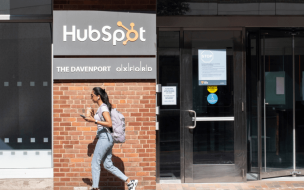
Top 10 Companies With The Best Work-Life Balance

‘Problems’ With Gen Z In The Workplace: How To Bridge The Soft Skills Gap

Consulting Recruiting Timeline | What Are The Application Deadlines For 2024?

Hacking the Case Interview
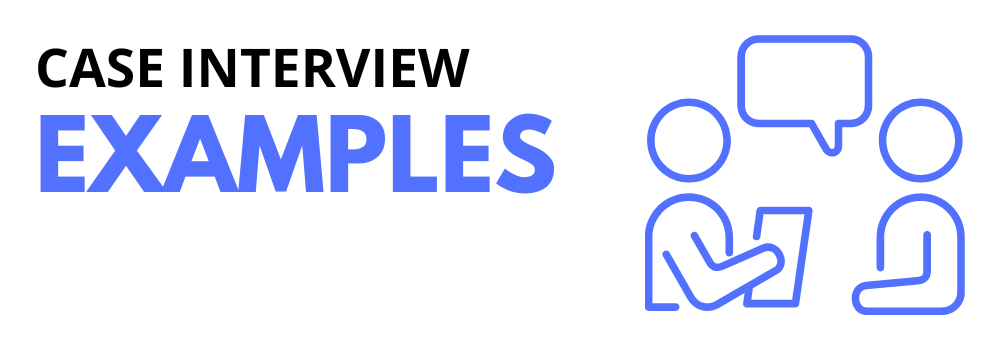
We’ve compiled 50 case interview examples and organized them by industry, function, and consulting firm to give you the best, free case interview practice. Use these case interview examples for practice as you prepare for your consulting interviews.
If you’re looking for a step-by-step shortcut to learn case interviews quickly, enroll in our case interview course . These insider strategies from a former Bain interviewer helped 30,000+ land consulting offers while saving hundreds of hours of prep time.
Case Interview Examples Organized by Industry
Below, we’ve linked all of the case interview examples we could find from consulting firm websites and YouTube videos and organized them by industry. This will be helpful for your case interview practice if there is a specific consulting industry role that you are interviewing for that you need more practice in.
Aerospace, Defense, & Government Case Interview Examples
- Agency V (Deloitte)
- The Agency (Deloitte)
- Federal Finance Agency (Deloitte)
- Federal Civil Cargo Protection Bureau (Deloitte)
Consumer Products & Retail Case Interview Examples
- Electro-light (McKinsey)
- Beautify (McKinsey)
- Shops Corporation (McKinsey)
- Climate Case (BCG)
- Foods Inc. (BCG) *scroll to bottom of page
- Chateau Boomerang (BCG) *written case interview
- PrintCo (Bain)
- Coffee Co. (Bain)
- Fashion Co. (Bain)
- Recreation Unlimited (Deloitte)
- Footlose (Deloitte)
- National Grocery and Drug Store (Kearney)
- Whisky Co. (OC&C)
- Dry Cleaners (Accenture) *scroll to page 15
- UK Grocery Retail (Strategy&) *scroll to page 24
- Ice Cream Co. (Capital One)
Healthcare & Life Sciences Case Interview Examples
- GlobaPharm (McKinsey)
- GenCo (BCG) *scroll to middle of page
- PrevenT (BCG)
- MedX (Deloitte)
- Medical Consumables (LEK)
- Medicine Company (HackingTheCaseInterview)
- Pharma Company (Indian Institute of Management)
Manufacturing & Production Case Interview Examples
- Aqualine (Oliver Wyman)
- 3D Printed Hip Implants (Roland Berger)
- Talbot Trucks (McKinsey)
- Playworks (Yale School of Management)
Social & Non-Profit Case Interview Examples
- Diconsa (McKinsey)
- National Education (McKinsey)
- Conservation Forever (McKinsey)
- Federal Health Agency (Deloitte)
- Robinson Philanthropy (Bridgespan)
- Home Nurses for New Families (Bridgespan)
- Reach for the Stars (Bridgespan)
- Venture Philanthropy (Bridgespan)
Technology, Media, & Telecom Case Interview Examples
- NextGen Tech (Bain)
- Smart Phone Introduction (Simon-Kucher)
- MicroTechnos (HackingTheCaseInterview)
Transportation Case Interview Examples
- Low Cost Carrier Airline (BCG)
- Transit Oriented Development (Roland Berger)
- Northeast Airlines (HackingTheCaseInterview)
- A+ Airline Co. (Yale School of Management)
- Ryder (HackingTheCaseInterview)
Travel & Entertainment Case Interview Examples
- Wumbleworld (Oliver Wyman)
- Theater Co. (LEK)
- Hotel and Casino Co. (OC&C)
Case Interview Examples Organized by Function
Below, we’ve taken the same cases listed in the “Case Interview Examples Organized by Industry” section and organized them by function instead. This will be helpful for your case interview practice if there is a specific type of case interview that you need more practice with.
Profitability Case Interview Examples
To learn how to solve profitability case interviews, check out our video below:
Market Entry Case Interview Examples
Merger & acquisition case interview examples.
Growth Strategy Case Interview Examples
Pricing case interview examples.
New Product Launch Case Interview Examples
Market sizing case interview examples.
To learn how to solve market sizing case interviews, check out our video below:
Operations Case Interview Examples
Other case interview examples.
These are cases that don’t quite fit into any of the above categories. These cases are the more unusual, atypical, and nontraditional cases out there.
Case Interview Examples Organized by Consulting Firm
Below, we’ve taken the same cases listed previously and organized them by company instead. This will be helpful for your case interview practice if there is a specific company that you are interviewing with.
McKinsey Case Interview Examples
BCG Case Interview Examples
Bain Case Interview Examples
Deloitte Case Interview Examples
Lek case interview examples, kearney case interview examples, oliver wyman case interview examples, roland berger case interview examples, oc&c case interview examples, bridgespan case interview examples, strategy& case interview examples, accenture case interview examples, simon kutcher case interview examples, capital one case interview examples, case interview examples from mba casebooks.
For more case interview examples, check out our article on 23 MBA consulting casebooks with 700+ free practice cases . There additional cases created by MBA consulting clubs that make for great case interview practice. For your convenience, we’ve listed some of the best MBA consulting casebooks below:
- Australian Graduate School of Management (2002)
- Booth (2005)
- Columbia (2007)
- Darden (2019)
- ESADE (2011)
- Fuqua (2018)
- Goizueta (2006)
- Haas (2019)
- Harvard Business School (2012)
- Illinois (2015)
- INSEAD (2011)
- Johnson (2003)
- Kellogg (2012)
- London Business School (2013)
- McCombs (2018)
- Notre Dame (2017)
- Queens (2019)
- Ross (2010)
- Sloan (2015)
- Stern (2018)
- Tuck (2009)
- Wharton (2017)
- Yale (2013)
Consulting casebooks are documents that MBA consulting clubs put together to help their members prepare for consulting case interviews. Consulting casebooks provide some case interview strategies and tips, but they mostly contain case interview practice cases.
While consulting casebooks contain tons of practice cases, there is quite a bit of variety in the sources and formats of these cases.
Some practice cases are taken from actual consulting interviews given by consulting firms. These are the best types of cases to practice with because they closely simulate the length and difficulty of an actual case interview. Other practice cases may be written by the consulting club’s officers. These cases are less realistic, but can still offer great practice.
The formats of the practice cases in consulting casebooks also vary significantly.
Some practice cases are written in a question and answer format. This type of format makes it easy to practice the case by yourself, without a case partner. Other practices cases are written in a dialogue format. These cases are better for practicing with a case interview partner.
MBA consulting casebooks can be a great resource because they are free and provide tons of practice cases to hone your case interview skills. However, there are several caveats that you should be aware of.
- Similarity to real case interviews : Some cases in MBA consulting casebooks are not representative of actual case interviews because they are written by consulting club officers instead of interviewers from consulting firms
- Quality of sample answers : While consulting casebooks provide sample solutions, these answers are often not the best or highest quality answers
- Ease of use : Consulting casebooks are all written in different formats and by different people. Therefore, it can be challenging to find cases that you can consistently use to practice cases by yourself or with a partner
Therefore, we recommend that you first use the case interview examples listed in this article and wait until you’ve exhausted all of them before using MBA consulting casebooks.
Case Interview Examples from HackingTheCaseInterview
Below, we've pulled together several of our very own case interview examples. You can use these case interview examples for your case interview practice.
1. Tech retailer profitability case interview
2. Airline profitability case interview
3. Ride sharing app market entry
4. Increasing Drug Adoption

How to Use Case Interview Examples to Practice Case Interviews
To get the most out of these case interview examples and maximize your time spent on case interview practice, follow these three steps.
1. Understand the case interview structure beforehand
If case interviews are something new to you, we recommend watching the following video to learn the basics of case interviews in under 30 minutes.
Know that there are seven major steps of a case interview.
- Understanding the case background : Take note while the interviewer gives you the case background information. Afterwards, provide a concise synthesis to confirm your understanding of the situation and objective
- Asking clarifying questions : Ask questions to better understand the case background and objective
- Structuring a framework : Lay out a framework of what areas you want to look into in order to answer or solve the case
- Kicking off the case : Propose an area of your framework that you would like to dive deeper into
- Solving quantitative problems : Solve a variety of different quantitative problems, such as market sizing questions and profitability questions. You may also be given charts and graphs to analyze or interpret
- Answering qualitative questions : You may be asked to brainstorm ideas or be asked to give your business opinion on a particular issue or topic
- Delivering a recommendation : Summarize the key takeaways from the case to deliver a firm and concise recommendation
2. Learn how to practice case interviews by yourself
There are 6 steps to practice case interviews by yourself. The goal of these steps is to simulate a real case interview as closely as you can so that you practice the same skills and techniques that you are going to use in a real case interview.
- Synthesize the case background information out loud : Start the practice case interview by reading the case background information. Then, just as you would do in a live case interview, summarize the case background information out loud
- Ask clarifying questions out loud : Just as you would do in a live case interview, ask clarifying questions out loud. Although you do not have a case partner that can answer your questions, it is important to practice identifying the critical questions that need to be asked to fully understand the case
- Structure a framework and present it out loud : Pretend that you are in an actual interview in which you’ll only have a few minutes to put together a comprehensive and coherent framework. Replicate the stress that you will feel in an interview when you are practicing case interviews on your own by giving yourself time pressure.
When you have finished creating your framework, turn your paper around to face an imaginary interviewer and walk through the framework out loud. You will need to get good at presenting your framework concisely and in an easy to understand way.
- Propose an area to start the case : Propose an area of your framework to start the case. Make sure to say out loud the reasons why you want to start with that particular area
- Answer each case question out loud : If the question is a quantitative problem, create a structure and walk the interviewer through how you would solve the problem. When doing math, do your calculations out loud and explain the steps that you are taking.
If the question is qualitative, structure your thinking and then brainstorm your ideas out loud. Walk the interviewer through your ideas and opinions.
- Deliver a recommendation out loud : Just as you would do in a real case interview, ask for a brief moment to collect your thoughts and review your notes. Once you have decided on a recommendation, present your recommendation to the interviewer.
3. Follow best practices while practicing case interviews :
You’ll most likely be watching, reading, or working through these case interview examples by yourself. To get the most practice and learnings out of each case interview example, follow these tips:
- Don’t have notes or a calculator out when you are practicing since you won’t have these in your actual interview
- Don’t take breaks in the middle of a mock case interview
- Don’t read the case answer until you completely finish answering each question
- Talk through everything out loud as if there were an interviewer in the room
- Occasionally record yourself to understand what you look like and sound like when you speak
4. Identify improvement areas to work on
When the case is completed, review your framework and answers and compare them to the model answers that the case provides. Reflect on how you could have made your framework or answers stronger.
Also, take the time to reflect on what parts of the case you could have done better. Could your case synthesis be more concise? Was your framework mutually exclusive and collectively exhaustive? Could your math calculations be done more smoothly? Was your recommendation structured enough?
This is the most important part of practicing case interviews by yourself. Since you have no partner to provide you feedback, you will need to be introspective and identify your own improvement areas.
At the end of each practice case interview, you should have a list of new things that you have learned and a list of improvement areas to work on in future practice cases. You’ll continue to work on your improvement areas in future practice cases either by yourself or with a partner.
5. Eventually find a case partner to practice with
You can only do so many practice case interviews by yourself before your learning will start to plateau. Eventually, you should be practicing case interviews with a case partner.
Practicing with a case partner is the best way to simulate a real case interview. There are many aspects of case interviews that you won’t be able to improve on unless you practice live with a partner:
- Driving the direction of the case
- Asking for more information
- Collaborating to get the right approach or structure
- Answering follow-up questions
If you are practicing with a case partner, decide who is going to be giving the case and who is going to be receiving the case.
If you are giving the case, read the entire case information carefully. It may be helpful to read through everything twice so that you are familiar with all of the information and can answer any question that your partner asks you to clarify.
As the person giving the case, you need to be the case expert.
You should become familiar with the overall direction of the case. In other words, you should know what the major questions of the case are and what the major areas of investigation are. This will help you run the mock case interview more smoothly.
Depending on whether you want the case interview to be interviewer-led or candidate-led, you will need to decide how much you want to steer the direction of the case.
If your partner gets stuck and is taking a long time, you may need to step in and provide suggestions or hints. If your partner is proceeding down a wrong direction, you will need to direct them towards the right direction.
Where to Find More Case Interview Examples
To find more case interview examples, you can use a variety of different case interview prep books, online courses, and coaching. We'll cover each of these different categories of resources for more case interview practice in more detail.
Case Interview Prep Books
Case interview prep books are great resources to use because they are fairly inexpensive, only costing $20 to $30. They contain a tremendous amount of information that you can read, digest, and re-read at your own pace.
Based on our comprehensive review of the 12 popular case interview prep books , we ranked nearly all of the case prep books in the market.
The three case interview prep books we recommend using are:
- Hacking the Case Interview : In this book, learn exactly what to do and what to say in every step of the case interview. This is the perfect book for beginners that are looking to learn the basics of case interviews quickly.
- The Ultimate Case Interview Workbook : In this book, hone your case interview skills through 65+ problems tailored towards each type of question asked in case interviews and 15 full-length practice cases. This book is great for intermediates looking to get quality practice.
- Case Interview Secrets : This book provides great explanations of essential case interview concepts and fundamentals. The stories and anecdotes that the author provides are entertaining and help paint a clear picture of what to expect in a case interview, what interviewers are looking for, and how to solve a case interview.
Case Interview Courses
Case interview courses are more expensive to use than case interview prep books, but offer more efficient and effective learning. You’ll learn much more quickly from watching someone teach you the material, provide examples, and then walk through practice problems than from reading a book by yourself.
Courses typically cost anywhere between $200 to $400.
If you are looking for a single resource to learn the best case interview strategies in the most efficient way possible, enroll in our comprehensive case interview course .
Through 70+ concise video lessons and 20 full-length practice cases based on real interviews from top-tier consulting firms, you’ll learn step-by-step how to crush your case interview.
We’ve had students pass their consulting first round interview with just a week of preparation, but know that your success depends on the amount of effort you put in and your starting capabilities.
Case Interview Coaching
With case interview coaching, you’ll pay anywhere between $100 to $300 for a 40- to 60-minute mock case interview session with a case coach. Typically, case coaches are former consultants or interviewers that have worked at top-tier consulting firms.
Although very expensive, case interview coaching can provide you with high quality feedback that can significantly improve your case interview performance. By working with a case coach, you will be practicing high quality cases with an expert. You’ll get detailed feedback that ordinary case interview partners are not able to provide.
Know that you do not need to purchase case interview coaching to receive a consulting job offer. The vast majority of candidates that receive offers from top firms did not purchase case interview coaching. By purchasing case interview coaching, you are essentially purchasing convenience and learning efficiency.
Case interview coaching is best for those that have already learned as much as they can about case interviews on their own and feel that they have reached a plateau in their learning. For case interview beginners and intermediates, it may be a better use of their money to first purchase a case interview course or case interview prep book before purchasing expensive coaching sessions.
If you do decide to eventually use a case interview coach, consider using our case coaching service .
There is a wide range of quality among coaches, so ensure that you are working with someone that is invested in your development and success. If possible, ask for reviews from previous candidates that your coach has worked with.
Summary of the Best Case Interview Resources
To prepare for consulting case interviews, we recommend the following resources to find more case interview examples and practice:
- Comprehensive Case Interview Course (our #1 recommendation): The only resource you need. Whether you have no business background, rusty math skills, or are short on time, this step-by-step course will transform you into a top 1% caser that lands multiple consulting offers.
- Hacking the Case Interview Book (available on Amazon): Perfect for beginners that are short on time. Transform yourself from a stressed-out case interview newbie to a confident intermediate in under a week. Some readers finish this book in a day and can already tackle tough cases.
- The Ultimate Case Interview Workbook (available on Amazon): Perfect for intermediates struggling with frameworks, case math, or generating business insights. No need to find a case partner – these drills, practice problems, and full-length cases can all be done by yourself.
- Case Interview Coaching : Personalized, one-on-one coaching with former consulting interviewers
- Behavioral & Fit Interview Course : Be prepared for 98% of behavioral and fit questions in just a few hours. We'll teach you exactly how to draft answers that will impress your interviewer
- Resume Review & Editing : Transform your resume into one that will get you multiple interviews
Land Multiple Consulting Offers
Complete, step-by-step case interview course. 30,000+ happy customers.

- The 1%: Conquer Your Consulting Case Interview
- Consulting Career Secrets
- Cover Letter & Resume
- McKinsey Solve Game (Imbellus)
- BCG Online Case (+ Pymetrics, Spark Hire)
- Bain Aptitude Tests (SOVA, Pymetrics, HireVue)
- Kearney Recruitment Test
- All-in-One Case Interview Preparation
- Industry Cheat Sheets
- Structuring & Brainstorming
- Data & Chart Interpretation
- Case Math Mastery
- McKinsey Interview Academy
- Brainteasers
Bain Written Case Interview: The Comprehensive Guide

Last Updated on February 5, 2024
Navigating Bain’s written case interview? This guide distills essential strategies and tips to excel in this critical component of Bain’s hiring process. Discover how to analyze written cases, draft persuasive recommendations, and present your analysis with confidence.
Bain Written Case Interview: A Quick Introduction
Bain & Company employs written case interviews during their recruiting process in addition to the traditional face-to-face case interviews .
What Is a Written Case Interview?
A written case interview is a specialized format employed in management consulting to assess how candidates tackle business problems, mirroring real consultant tasks. It usually unfolds in five stages: receiving case documents and questions that need to be answered, analyzing the information, creating analytical slides, presenting findings in front of one or two interviewers, and engaging in a Q&A session.
A unique aspect of the Bain written case is the preparation time allowed, necessitating a thorough analysis of extensive information. During that time, candidates are required to analyze the situation and craft slides to convey their analysis and recommendations, simulating the consultant’s role in client meetings.
More specifically, the Bain written case interview asks you to draft a recommendation for a challenging client situation. You are presented with a lot of information and facts about the problem as well as a few key questions that need to be solved. You will have ~1 hour to prepare your recommendation, which you have to present and defend in front of one or more interviewers afterward.
Your task is to understand the client’s problem, and develop a sensible recommendation, taking into account the various trade-offs. You are expected to engage in a problem-solving discussion with your interviewer, who acts as a fictitious client to ensure a strong outcome for the client.
In the process, you are bombarded with information. You have to work hypothesis-driven and link the questions to the provided information to quickly zero in on the relevant bits of data and then, conduct your analysis.
Based on this analysis, you should draft a short consulting-style presentation, crafting your own storyline and narrative.
When Does the Bain Written Case Interview Occur?
This written interview typically occurs after passing initial resume screenings and the Bain SOVA and other online tests in the recruitment process.
While the traditional case interview is always part of the Bain assessment, the written case interview serves as an equally critical tool in consulting recruitment for several Bain offices. Yet, you should be aware that the written case interview is not always part of the Bain recruiting process as each individual office can adjust their recruiting process.
Keep that in mind when creating your consulting interview preparation plan .
If the written case is included in your assessment, do not worry.
After all, the written case interview presents you with a slight variation of the classic case interview. Hence, preparing for the case interview also helps you with your performance with the written case and vice versa.
Essential Skills for the Bain Written Case Interview
In the written case interview, Bain assesses various competencies that are critical for success:
- Analytical Thinking : Your skill in dissecting complex datasets to extract vital insights and draw informed conclusions is evaluated.
- Problem-Solving : You’re tested on your ability to hypothesize and devise practical strategies for the case’s business challenges.
- Time Management : Your capability to effectively distribute time across tasks, ensuring a comprehensive analysis and well-prepared recommendations, is crucial.
- Communication : Your presentation must clearly and convincingly convey your solutions and the thought process behind them.
- Detail-Oriented Approach : Your knack for pinpointing and assessing even the minutest but impactful data points is scrutinized.
- Innovative Thinking : Your flair for crafting novel solutions and approaching problems from unique angles is observed.
- Business Insight : Your grasp of the broader business landscape, specific industry knowledge, and the viability of your proposals is assessed.
- Quantitative Proficiency : Your adeptness at executing precise calculations and leveraging data to bolster your case is evaluated.
- Grace Under Fire : Your poise and ability to remain unflustered under the interview’s pressure, particularly when challenged, is gauged.
- Presentation Acumen : The aesthetic and structural execution of your slides, coupled with your proficiency in delivering content compellingly, is judged.
Bain Written Case Fact Pack
- Duration: 1 hour 35 minutes in total (55 minutes to prepare, 40 minutes to present and debate)
- Data: 20-30 slides packed with information on a specific client’s issue
- Output: Slide templates to structure and guide your storyline and recommendations. Fill in the blanks on the specific slides (e.g. provide supporting data and points for an action title, fill results calculations, strengthen graphs and tables with data you have calculated, etc.)
- Format: You prepare several slides to present your recommendation and analysis/ supporting arguments and then get challenged by the interviewer to see how you would react in a real client situation
- Math: The numerical problems are simple and should be tackled with classic pen-and-paper math or estimations; calculators are not allowed
- Focus: All industries or functions are fair game
- Target group: The written case interview is currently employed mostly in Asian and European offices during the second round interviews
- Preparation materials: Case study examples and case study examples for students applying at McKinsey, BCG, or Bain
The Stages of the Bain Written Case Interview
Stage 1: case reception.
Bain presents candidates with the case materials, which may comprise printed PowerPoint slides or A4 documents. The information comprises 20 to 30 slides with text, data tables, and charts and a client objective.
Stage 2: Hypothesis Development and Data Analysis
Prior to crafting their slides, candidates should perform an in-depth analysis of the case materials. This stage is crucial for generating and evaluating hypotheses informed by the data.
Here, candidates must demonstrate their analytical prowess by filtering through the material to pinpoint essential data and formulate initial hypotheses that will inform the creation of their presentation slides.
Dealing with the volume and intricacy of the data requires adept hypothesis generation and evaluation.
Stage 3: Crafting Presentation Slides
With data-driven insights in hand, candidates begin to create their presentation slides. This stage involves a careful selection and analysis of data to back up their hypotheses and the creation of slides that concisely capture their analysis, insights, evidence, and strategic recommendations.
Stage 4: Delivering the Presentation
After 55 minutes of preparation, candidates have around 15 to 20 minutes to present their conclusions and recommendations to interviewers. The presentation should be well-organized, featuring a summary of the case, well-defined hypotheses, supportive charts/graphs/insights, and definitive recommendations.
Stage 5: Engaging in a Q&A Session
The interview process wraps up with a 15 to 20 minute Q&A session, which might delve into more personal aspects or clarify particulars of the candidate’s presentation.
Interviewers will examine the candidates’ conclusions and challenge their reasoning to evaluate their level of preparation and comprehensive understanding.
Candidates should understand that intensive scrutiny of their assumptions and conclusions is a deliberate aspect of the assessment, aimed at testing their composure and the robustness with which they can uphold and justify their recommendations when faced with pressure.
Bain Written Case Interview Tips
Bain recommends the following to tackle their interviews. Keep it in mind when you draft your recommendation!
- Trust your gut. There is no one correct answer. You need to deliver a persuasive recommendation and participate in a rich discussion about how to achieve results for your client.
- Prioritize. Preparation time goes quickly, so put aside case slides that seem less important.
- Be concise. Have your key messages outlined in your summary. Save the details for your discussion.
- Do the math. Figure out what analytics are necessary for your recommendation, and piece together the required data from the slides.
- Be pragmatic. Craft a recommendation that can actually be implemented by the client.
- Consider both sides. Strengthen the rationale behind your recommendation by working through the strongest arguments against it.
While these tips are helpful, they do not allow for a structured problem-solving process. Hence, we created one ourselves for our clients to go through.
Bain Written Case Interview Strategy
We’ve developed a proven strategy designed to navigate this specific type of evaluation successfully. Here is our six-step method for approaching written case interviews, tailored to concentrate your efforts, pinpoint the essential elements of the case, quickly process and integrate the information at hand, and formulate a compelling recommendation.
1. Have a Plan Before You Start the Bain Written Case
Since time is usually limited, you should have a plan on how long you want to spend on each task of the assignment beforehand. For the 55-minute case take
- 2.5 minutes for a quick scan of the documents
- 2.5 minutes to plan your approach (i.e. what do you need to figure out, what information is important, what analyses would you have to do, what output documents do you have to draft)
- 10 minutes to draft your output slides (doing this early helps you to focus your analytical efforts)
- 30 minutes to conduct analyses and work through the case
- 10 minutes to populate your slides with your findings and recommendations.
Utilize case study examples and templates available at this link for your preparation.
Considering the time limitations, it’s practical to anticipate that things may not always proceed as planned. Therefore, it’s crucial to assign definite time segments for each activity during your prep work, while also setting aside a contingency period for unforeseen setbacks or to enhance any aspects of the case needing additional attention.
2. Quickly Separate Crucial Information From the Noise
Written case interviews often inundate you with an excess of information that requires sorting. Initially, identify the essential information needed for your analyses to formulate a recommendation. Document the primary question you need to address and continually reference it throughout your work on the case.
Ensure clarity on the questions posed and develop a hypothesis for each possible response. Given the premium on time, it’s not feasible to explore every analysis and hypothesis comprehensively. Concentrate on the critical questions that fundamentally influence your recommendation, aiming to focus your presentation on the most relevant aspects.
This approach allows you to read with targeted objectives, enhancing your ability to process information quickly. Then, gather the necessary data, organize your analysis strategically, and engage deeply. Adopt a hypothesis-driven method to structure your analysis and reasoning, integrating each piece of your analysis to arrive at well-founded conclusions, akin to the process in a traditional case interview.
You can practice this by looking at business school cases, such as
- HBS case studies
- Ivey case studies
- INSEAD case studies
- MIT case studies (includes free materials)
You can also look at case study examples and case study examples for students that we compiled here . There is also a certain overlap with HireVue interview questions .
Additionally, try to increase your reading speed with apps such as Spreeder, Reedy, or Read Me!
Ace written case interviews with our dedicated preparation packages.

3. Interpret and Distill Key Insights From Charts and Data Tables
Written cases bombard you with charts, graphs, tables, and other visual depictions of data that you should use to test your hypotheses. Learn how to quickly read and interpret them.
- What are the key messages and insights?
- How does the information of several charts/ tables, etc. relate to each other?
- What information is relevant to the case?
To prepare these skills, go through The Economist, the Wall Street Journal or similar and use their graphs or tables to train your reading and interpretation skills. Alternatively, look at practice McKinsey Problem Solving Test or BCG potential test graphs. Time yourself while doing it, e.g. giving yourself 30 seconds before you are able to communicate what the graph is all about and what you would infer from it (what is the ‘so what’?).
You can also use our Consulting Chart and Data Interpretation Course and Drills to improve how consultants analyze charts and generate insights quickly.
4. Quickly Draft Formulas and Conduct Pen-and-Paper Math
Get into the habit of quickly setting up and simplifying calculations. Practice quick pen-and-paper math as well as estimations similar to what you would do in a normal case interview. To prepare and practice, look into McKinsey PST, BCG potential test exercises as well as GMAT questions.
If you need to brush up on your math skills, we have created a program with detailed insider learning materials and close to 2,000 practice drills that mimic the McKinsey, BCG, and Bain case interview math for you here: the Case Interview Math Mastery .
5. Draft a Compelling Storyline and Tell It With Visually Appealing Outputs
Create a top-down storyline of your recommendations. State your primary recommendation, then use supporting arguments to strengthen your position.
In practice, you would have one key slide talking about your finding and recommendation, i.e. what or how the client should solve the problem, Then, you would have several supporting slides, discussing arguments for your solution, i.e. why your approach is the best. Lastly, put a slide talking about the next steps to hedge your bets (what else would you like to know to make your recommendation even stronger) and demonstrate that you think ahead.
As for the slide design, use an action title on each, then some visual aids like a graph (remember to have a graph title as well) and some supporting bullet points, or if not applicable, just bullet points.
- The action title should convey the so-what of your analysis. You need to show the implication of what you present rather than a description of what you have found.
- The headings of each slide together should tell the full story. Everything below the heading are details to the story and should support your key message
6. Communicate and Defend Your Recommendation
If you have to present your findings at the end of the case, follow the top-down approach of your slide deck. Be confident and engaging when going through your recommendations and supporting arguments.
First, present your headlines, e.g. “The client needs to cut cost by x% to break even within the next 5 years”; then move on to the details of the slide such as “Our manufacturing cost has increased by 25% over the last 3 years,..”
Follow this structure:
- Offer your recommendation succinctly.
- Back it up with compelling evidence and reasoning.
- Outline potential risks linked to your strategy.
- Advise on the next steps to further improve your analysis or move towards implementation.
Remember, reiterating the case prompt isn’t necessary—it’s a prudent use of precious time to dive straight into your insights.
This approach is very much like the recommendation you would give at the end of a normal case interview.
Point out when you are using hypotheses and assumptions that you were not able to fully verify.
Lastly, be open and ready to debate. The interviewers will definitely challenge your recommendation. It is important that you confidently stand your ground unless they make you aware of an obvious mistake on your part. In the latter case, demonstrate that you are coachable and save the situation by providing a plan of action on how to re-do the analysis to cross-check and improve your results.
Learn more about consulting case interview communication here .
Practice for the Bain Written Case Interview
Preparing effectively for the Bain written case interview is crucial to securing that coveted consulting role. For Bain case interview preparation, employ consulting case study tips and robust case interview strategies to navigate the challenges and ace your assessment.
If you want to test your ability to work on a written case, click the following link that redirects you to a real example by BCG.
Here are six key strategies to polish your skills for a standout performance:
- Refine Rapid Reading Abilities : Speed reading is essential due to the voluminous information you’ll face. Learn to quickly identify key data, which is vital when under time constraints. Employ techniques such as using a tracker or pacer and practice using speed reading apps on your computer and phone.
- Hone Consulting Math Proficiency : Sharp mental arithmetic is a must for consultants who work with numbers daily. Using a calculator is not allowed. Strengthen your mental math with daily practice, starting with small steps and building up to complex calculations.
- Develop Data Analysis Skills : The core of a hypothesis-driven approach is the ability to analyze data to support your recommendations. Focus on the three key processes: Analyzing the data presented, contextualizing within the case’s framework, and interpreting the results to drive business insights.
- Grasp Case Interview Basics : The fundamental skills of a traditional case interview apply here too. Familiarize yourself with concepts like issue trees, MECE principles, structured communication, and top-down analysis.
- Master Consulting-Style Slide Creation : In consulting, presentations are the end-product of your analysis. Learn to organize content in a clear, impactful way, even if the actual design isn’t your responsibility. Look for resources that guide you through crafting slides that resonate with a consulting audience.
- Practice with Mock Interviews : Simulate the interview experience with mock sessions. Seek out former consultants and expert interview coaches who can provide informed feedback and guidance.
Diligent practice in these areas can significantly enhance your readiness and confidence for the written case interview, setting you apart in the competitive field of consulting.
How We Help You Get Top-Tier Consulting Offers
We have specialized in placing people from all walks of life with different backgrounds into top consulting firms both as generalist hires as well as specialized hires and experts. As former McKinsey consultants and interview experts, we help you by
- tailoring your resume and cover letter to meet consulting firms’ highest standards
- showing you how to pass the different online assessments and tests for McKinsey , BCG , and Bain
- showing you how to ace McKinsey interviews and the PEI with our video academy
- coaching you in our 1-on-1 sessions to become an excellent case solver and impress with your fit answers (90% success rate after 5 sessions)
- preparing your math to be bulletproof for every case interview
- helping you structure creative and complex case interviews
- teaching you how to interpret charts and exhibits like a consultant
- providing you with cheat sheets and overviews for 27 industries .
To improve your skills in all areas of the written interview, check out our targeted offers below.
Leave a Reply Cancel reply
Your email address will not be published. Required fields are marked *

Florian spent 5 years with McKinsey as a senior consultant. He is an experienced consulting interviewer and problem-solving coach, having interviewed 100s of candidates in real and mock interviews. He started StrategyCase.com to make top-tier consulting firms more accessible for top talent, using tailored and up-to-date know-how about their recruiting. He ranks as the most successful consulting case and fit interview coach, generating more than 500 offers with MBB, tier-2 firms, Big 4 consulting divisions, in-house consultancies, and boutique firms through direct coaching of his clients over the last 3.5 years. His books “The 1%: Conquer Your Consulting Case Interview” and “Consulting Career Secrets” are available via Amazon.
Most Popular Products

Search website
Strategycase.com.
© 2024 | Contact: +43 6706059449 | Mattiellistrasse 3/28, 1040 Vienna, Austria
- Terms & Conditions
- Privacy Policy
- Universities & consulting clubs
- American Express
Click on the image to learn more.

Written Case Interview - Everything You Need to Know [2024]
- Last Updated February, 2024
Rebecca Smith-Allen
Former McKinsey Engagement Manager
Why Do Firms Use the Written Case?
How Should Candidates Approach the Written Case?
Bain Written Case - What to Expect
Tips to Feel Confident in the Written Case
Are Written Cases Different from Case Questions?
The written case interview is less common than the typical case study interview, which is conducted one-on-one with an interviewer. But even top firms like Bain and BCG use them in some geographic regions, so you’ll want to be prepared for them.
The good news is that the written case is just a different form of the case interview. If you’ve been preparing for the case study interview , then you have the foundations to pass the written case as well. But the things you need to do to ace a written case are not exactly the same as a normal case.
In this article, we’ll provide:
- An overview of the Bain and BCG written case interviews,
- Tell you how they’re structured,
- Share our 9 tips on written case study interviews, and
- Tell you how you should prepare for these types of cases.
Why Do Bain and BCG Use Written Case Study Questions?
Some people are great at talking. Some people are great at writing. To succeed in consulting, you need to be pretty strong at both.
Bain and BCG use written case study interviews to make sure they hire consultants that can absorb key facts whether the data is provided in a conversation or in writing. They’re also looking to see whether you can go through large amounts of data quickly and whether your written communication is effective.
In a written case interview, your interviewer is still looking for the same key problem-solving skills:
- Can you frame the question that needs to be answered?
- Can you drive the discussion of the options open to the client?
- Can you do the quantitative analysis required to support your problems solving?
- Do you display good business judgment in your recommendation?
[EXCLUSIVE FREE TRAINING]
- 3 strategies to pass the case in under a week;
- A proven process for taking your casing from "average" to "exceptional";
- Tips from a McKinsey Engagement Manager on how to land the offer.
Bain Written Case Study Questions — What to Expect
Your written case study at Bain will start with you receiving 20-30 PowerPoint slides that describe a client’s situation .
You’ll have 55 minutes to read the slides, pull key data and insights from the material, and handwrite missing data into 3-5 slides provided to you.
You’ll then meet with one or more Bain interviewers for about 40 minutes to discuss your analysis and recommendations. During the first half of this time, you’ll present your slides. During the second half, your interviewer will ask questions.
Your interview may challenge your assumptions or conclusions. This does not necessarily mean that you got the “wrong” answer. It only means that your interviewer wants to test whether you can support your recommendations when pressed.
Over the course of a 6-month study, things change. Your interviewer wants to know that when they do, you’ll be able to react to the situation in a way that shows your insight into the problem, not panic.
As mentioned above, you’ll get a few slides that contain some pre-filled information but they are not complete. These slides might have a title and be otherwise blank. In this case, you’ll be required to find the appropriate information to support the title and to create the page.
Alternatively, these slides might have graphs and tables that require data to be filled in. In this case, you need to find the information required and do the appropriate calculations to provide the missing numbers.
The good news is that because you’re provided direction on what belongs on the page, you don’t need to create a storyline for the presentation or decide how many pages to present.
During the Bain case interview you are not allowed to use a calculator.
The quantitative problems in the written cases are not complicated, but your interviewer is looking to see that you can do basic analysis correctly.
Which Candidates Get a Bain Written Case Interview?
Not all Bain recruits are given written case interviews. They’re primarily used in the European and Asian offices, not in North America. They’re very common in Bain’s Greater China offices.
Any recruits—undergraduates, business school students and people looking to transition to consulting from jobs in other fields—could all be given written case interviews. People applying for summer internships could as well.
Bain uses written cases in final round interviews , not the first round. The final round interviews will include a fit interview as well as a written case.
The written cases count as much as “normal” cases do. They can involve any industry and any type of client problem
BCG Written Case Study Questions — What to Expect
The BCG written case question is structured like an email written by a partner at the firm. In the email, the partner asks you to answer 3-4 questions. He or she wants you to prepare slides that could be used to discuss the issues with the client.
Along with the email, a slide packet of about 40 pages will be provided. These slides will include data charts, graphs, and text.
You’ll have 2 hours to go through the information you’re provided on your own and create the slides. However, with 40 slides of dense information in your hands, you could easily spend the entire 2 hours just reading and not have anything to show your interviewer.
Use your time efficiently , skimming for information that’s directly relevant to the questions you were asked to answer.
Your packet will include a few blank pieces of paper to use to create the slides that answer the partner’s question. Because these pages are blank, you’ll have to decide how many slides to create and how to structure them. This puts a lot more pressure on you to decide how to shape the story about the solution to the client’s business problem than in the Bain written case.
A couple more small but important points:
You’re allowed to use a calculator during the BCG written case interview.
You’re not allowed to write on the slides you’re given because BCG uses the se same slides with other candidates. This can be challenging because you won’t be able to make notes on the slides you’ve pulled data from in case you want to go back and reference it.
After the 2 hours working on your own, you’ll have a 40-minute discussion with an interviewer .
- During the first 20 minutes: you’ll present your slides to the consultant.
- During the second: they’ll ask you questions about your analysis and conclusions.
Which Candidates Get a BCG Written Case Interview?
BCG does not use written cases in all of its locations. We’ve heard of BCG using written cases in U.S. offices, Russia, Sweden, the Netherlands, and South Africa.
When they do use written cases, it’s always in the second round of interviews and you will know well ahead of time to prepare for them, so no need to worry if it will be a surprise come interview day.
What Are the Differences Between the Bain and BCG Written Case Study Interview Assessments?
The Bain written case is shorter both in terms of the number of slides you’ll need to sort through for information and in terms of the time you have to work on your own.
The Bain written case also provides slides that are partially filled in, which you will need to complete.
You are not allowed to use a calculator on the Bain written case interview but you are allowed to on the BCG written case interview.
For the BCG written case, you’ll have more slides to sort through and more time to do it. You’ll be provided with blank slides on which you can provide your answers to the questions from the partner’s email.
Are Written Case Questions Different from Normal Cases?
Written cases are similar to normal cases. The interviewer is still assessing how you structure and solve a business problem.
There are 4 key differences though:
- There’s too much information. The 20-40 slides you’re given will provide more information than you need. Sift quickly through the data to find the information most relevant to the question you need to answer. This tests a skill that is directly applicable to real-world consulting. Clients have tons of data, but if you ask for everything that could possibly be relevant, you’ll take so long answering the question that it could be irrelevant by the time you reach it. You need to sort through what is worth your time and what to set aside.
- You’ll need to focus on your recommendation. In our article on Case Interview Examples , MyConsultingOffer.org founder, Davis Nguyen, discusses the 4 key parts of the case interview , the opening, the structure, the analysis, and the closing. In written cases, focus on the closing or recommendation for the client. You’ll discuss other aspects of the case when you meet with your interviewer.
Don’t use the slides to describe how you did the work.
Don’t document every step you went through to reach your conclusion or every calculation you did. Use headings that speak to the steps you recommend the client takes. On graphs or charts, headings should speak to the implications of data, not simply regurgitate what the chart shows.
What Written Case Study Questions Tell You About the Job of a Junior Consultant
Look at the structure of the Bain and BCG written cases:
- You get an email from a partner who’s not available to answer questions when you start your work, or
- You’re given a huge pile of data with slides that roughly outline the analysis to be done,
- You’re responsible for quickly finding the key data, doing the analysis and creating the PowerPoint slides for the client meeting.
This is actually a fair representation of the work new consultants do at any of the top consulting firms. Partners work with multiple clients so they will not be around to tell you exactly what to do and how to do it.
A great consultant will work independently finding and analyzing data and creating slides.
Because of this, a written case is a great second round interview. It will tell your interviewer a lot about how well you’ll perform in the job. It will also give you good insight into what the job is like.
Written Case Study Interview Examples
- Which market should the client enter? Why is this market attractive?
- What would the competitive advantages and disadvantages of the client’s product be in the new market?
A written case study question could focus on any industry and any geographic region, just like a normal case study can.
Writing PowerPoint Slides – The Best Approach
In our intro page on Case Study Interview Prep , we talk about the 4-part process for answering a case.
The one time we don’t recommend you use this approach is on written case study questions.
If you go through the 4-part process for answering a “normal” case in your PowerPoint slides, you’ll spend too much time on less important topics and not enough on your recommendation for the client. Instead, turn the structure around and start with your conclusion or recommendation. We recommend your written slides follow the following 5 R outline:
- Recap the question.
- State your recommendation.
- Provide the reasoning behind your recommendation.
- Outline any risks to your recommendation.
- Retain the client by suggesting next steps.
Below, we’ll provide more detail on each point.
1. Recap the question.
This is a simple step but it ensures that everyone is focused on the same goal. Don’t skip this step even though it seems obvious.
2. State your recommendation.
The best way to move the discussion forward efficiently and keep the interviewer (and your future consulting clients) focused on what you’re saying rather than on guessing what’s coming next is to simply lead with your answer.
3. Provide the reasoning behind your recommendation.
Now is the time to show that you thought through your solution and crunched all the necessary numbers. Create a slide with the data behind each supporting argument.
4. Outline any risks to your recommendation.
Many recruits can do steps 1-3. Their computations are correct and they come up with a reasonable recommendation. What will set your written case study answer apart?
Going above and beyond the average answer. One way to do this is by outlining risks.
Whoa, you might say, if I talk about risks won’t my answer sound weaker?
First of all, any senior business leader knows that all business decisions come with risks. There is risk in doing nothing because your competitors will act faster and come out with better products or better marketing plans.
There is also risk in acting fast because you might find that with imperfect information, you didn’t make the best possible decision.
But knowing what risks are the most relevant to a business situation will help the client minimize the risks or avoid them altogether.
5. Retain the client by suggesting next steps.
Like outlining risks, suggesting next steps is a way to go beyond the basic answer most recruits provide. In particular, you want to show how you can help with the next steps.
Consultants make money by providing support to their clients. If there are ways that you can help the client with the next stage of the project, that will also create more interesting work for you and continue to help your client’s business.
What Does this Approach to Writing PowerPoint Slides Look Like?
- 1st slide: Client Should Take Recommended Action for the Following 3 Reasons.
- 2nd slide: Outline reason #1. The slide should provide charts or data that support the statement.
- 3rd slide: Outline reason #2. The slide should provide charts or data that support the statement.
- 4th slide: Outline #3. The slide should provide charts or data that support the statement.
- 5th slide: Recap the Recommendation – emphasizing benefits but touching on risks and how the consultant can help with next steps.
9 Tips for Solving Written Case Study Questions
1 | Contact your recruiter or prior applicants to get a solid understanding of what’s expected. Will you be expected to complete slides provides or write slides from scratch? How long is the preparation time, presentation time, and Q&A time? Who will you be presenting to?
2 | Focus on the question you need to answer. If you start with the end in mind, it will help you zero in on the information that will drive the answer to the client’s question. It will also help you discard irrelevant facts.
The question must be clear in your mind before you go through the slides. The question may be stated in the way that is nebulous or strategic. If so, you should reframe it into something more straightforward that can be answered with data.
Write your reframed question down.
You may think that you will clearly remember the question, but all the information on the slides will look important. Keep the question close to hand as you skim through the information on the slides.
3 | Develop a hypothesis you can prove or disprove. A strong hypothesis will keep you focused on finding data and anecdotes that are relevant.
4 | Prioritize relevant data. Not all facts or slides are equally important. Focus on the key issues and avoid getting lost in the weeds.
5 | Analyze key numbers. Figure out what data is important for the decision the client must make and perform necessary calculations. Ignore the rest of the data.
6 | Structure your slides as a client recommendation. While the “normal” case has 4 stages: the opening, the structure, the analysis, and the conclusion, your written case study answer should start with the conclusion or recommendation.
What should the client do?
Don’t waste time describing the tables you created or the calculations you did if they have no bearing on your recommendation. Everyone assumes you can do the math. What they care about is the “so what” that comes out of the math.
7 | Keep an eye on the time. It’s important to make sure you have enough time to write your slides. Allocate the time you’re given to skimming the slides provided for information, doing necessary calculations, and drafting slides. Make sure you don’t run over on reading slides.
Optimally, you’ll want to leave a few minutes to think through how you’ll present the slides to your interviewer as well.
8 | Remember there is no “right” answer. The key to this interview is to make a well-reasoned recommendation and have a rich discussion about how to achieve results for your client.
Everyone gets nervous during an interview, but second-guessing whether your recommendation is right or wrong will only waste time. Instead, focus on making your argument for the recommendation you’ve chosen as strong as it can be.
9 | Conclude with insights that go beyond the average answer to the case. As mentioned above, most recruits will get the math right and present a reasonable recommendation. Go beyond this by highlighting risks that the client should be aware of as they implement your recommendation and ways your consulting team can continue to assist the client through the next steps.
Risks and next steps are mentioned by few candidates and will set your answer apart from the rest.
How Should Candidates Approach Written Case Study Practice?
Learn to write presentations like a consultant..
The key to writing presentations like a consultant is to tell a story. Use the 5R framework from above t o create your story.
Start with your recommendation to the client. Back up your recommendation with supporting arguments and the data that lead you to them.
Use message headings rather than titles that just repeat the data in a chart.
Chart Title: Product C has higher sales than products A or B.
Message Heading: Product C’s success in the domestic market indicated that it is the best product to launch into the new market.
Practice your consulting math skills.
If your basic math skills are rusty and making you nervous, that will slow you down in any case interview. Rusty math skills can be particularly problematic in a written case because there will be no interviewer to coach you that you’ve made a mistake until your slides are already written. Bad math could cause you to create slides with the wrong recommendation and that would be difficult to recover from.
See our page on Case Interview Math for more information on what types of calculations case study questions typically ask for and tips on how to practice.
Preview written case interviews.
Just knowing what to expect in a written case interview is a huge advantage. Take a look at the resources listed in the next section. Reviewing a couple of BCG or Bain written cases will make you feel more confident and allow you to answer the question faster once you’re in the interview.
Additional Resources on Written Case Study Questions
For more information on written case study questions, see:
This Bain video or BCG’s Guided Consulting Cases .
In this article, you’ve learned about both the Bain written cases and the BCG written cases. You’ve learned what the format is, what to expect and how to prepare for these written case study interview questions.
We hope you ace that written case!
Still have questions??
If you have more questions about written case interviews, leave them in the comments below. One of My Consulting Offer’s Bain or BCG case coaches will answer them.
Other pages people preparing for written case study interviews found helpful include:
- Group Case Interviews
- BCG Online Case
- Market Sizing Questions
- Case Interview Examples
- Consulting Networking
Want to feel confident walking into your written case interview? Find out how.
Leave a comment cancel reply.
Save my name, email, and website in this browser for the next time I comment.
© My CONSULTING Offer
3 Top Strategies to Master the Case Interview in Under a Week
We are sharing our powerful strategies to pass the case interview even if you have no business background, zero casing experience, or only have a week to prepare.
No thanks, I don't want free strategies to get into consulting.
We are excited to invite you to the online event., where should we send you the calendar invite and login information.
- Recently Active
- Top Discussions
- Best Content
By Industry
- Investment Banking
- Private Equity
- Hedge Funds
- Real Estate
- Venture Capital
- Asset Management
- Equity Research
- Investing, Markets Forum
- Business School
- Fashion Advice
- Company Database
Bain Capital

- All Interviews (39)
- All Salaries (79)
- All Reviews (29)
Contribute to the database and get 1 month free* Full online access!
Contribute and get 1 month free!
2 days free for intern submissions
Most Popular
WSO Premium
Full database access + industry reports: IB, PE, HF, Consulting
$ 8 .08 per month billed annually
...or $19 month-to month
Includes All Industry Reports
25k Interviews, 39k Salaries, 11k Reviews
IB, PE, HF Data by Firm (+ more industries)
Bain Capital Interview Questions
The Interview Experience is a score from 1 star (very negative) to 5 stars (very positive) generated based on the Interview Insights at this company.
The number you see in the middle of the doughnut pie chart is the simple average of these scores. If you hover over the various sections of the donut, you will see the % breakdown of each score given.
The percentile score in the title is calculated across the entire Company Database and uses an adjusted score based on Bayesian Estimates (to account for companies that have few interview insights). Simply put, as a company gets more reviews, the confidence of a "true score" increases so it is pulled closer to its simple average and away from the average of the entire dataset.
- Very Negative
- Very Positive
The Interview Difficulty is a score ranging from very difficult (red) to very easy (green) generated based on the Interview Insights at this company.
The number you see in the middle of the doughnut pie chart is the simple average of these scores. The higher the number, the more difficult the interviews on average. If you hover over the various sections of the doughnut, you will see the % breakdown of each score given.
The percentile score in the title is calculated across the entire Company Database and uses an adjusted score based on Bayesian Estimates (to account for companies that have few interview insights). Simply put, as a company gets more insights, the confidence of a "true score" increases so it is pulled closer to its simple average and away from the average of the entire data set.
- Very Difficult
The % of Interns Getting a Full Time Offer chart is meant to provide a realistic estimate of the hiring practices of the company based on the reviews at this company.
The number you see in the middle of the doughnut pie chart is the simple average of these scores. If you hover over the various sections of the doughnut, you will see the % breakdown of each score given.
The percentile score in the title is calculated across the entire Company Database and uses an adjusted score based on Bayesian Estimates (to account for companies that have few reviews). Simply put, as a company gets more reviews, the confidence of a "true score" increases so it is pulled closer to the simple company average and away from the average of the entire data set.
Interviews at Bain Capital
Interview questions & answers - bain capital examples, private credit summer analyst interview - generalist, associate interview - private equity, summer analyst interview - special situations group, associate interview - generalist, summer analyst interview - private equity, investment analyst interview - real estate, analyst interview, analyst interview - mergers and acquisitions, associate interview - investment banking, similar companies.

Unlock WSO Database
1 month free. Add your own pay data.

Get Free Access

Get instant access to lessons taught by experienced private equity pros and bulge bracket investment bankers including financial statement modeling, DCF, M&A, LBO, Comps and Excel Modeling.
or Want to Sign up with your social account?
21 market sizing questions with answers (McKinsey, BCG, etc.)

If you’re preparing for a case interview at McKinsey, BCG, Bain, or another top consulting firm, you can expect to face a market sizing question. This could be something like “What’s the market size for take-away coffee in this country?” or “How many bottles of wine are sold in the U.S. every year?”
The best way to get the hang of these questions is to practise them. To save you hours of research, we’ve collected 21 typical market sizing questions with good quality solutions and listed them below.
Here’s an overview of what we’ll cover:
- What are market sizing questions?
- How to prepare for market sizing questions
Click here to practise 1-on-1 with MBB ex-interviewers
1. what are market sizing questions.
Market sizing questions are typically asked at the beginning of consulting case interviews. They require you to perform rough calculations in order to estimate the size of a particular market without having any data available.
There are two types of market sizing questions. Most commonly, you'll be asked to estimate the value of a market - that is, to calculate its annual revenue. The market could be anything, from soft drinks to ping pong balls, and you’ll need to give an estimate of its annual worth (e.g £5 billion).
Alternatively, you may be asked to estimate the volume of a market - that is, to calculate the number of units sold (e.g 5 billion ping pong balls).
1.1 Why do companies ask market sizing questions?
Consulting firms tend to ask market sizing questions for two main reasons:
Firstly, it gives the interviewer the chance to see whether the candidate's basic mathematical and problem-solving skills are of a good standard, and whether they can use them quickly and logically in a pressure situation.
Secondly, consultants will often need to provide “guesstimates” and ball-park figures of market size while they’re talking to clients, be it on strategy cases or due diligence cases. Thus the ability to do a quick back of the envelope calculation, perhaps during or just before a client meeting, is of real practical value.
So, let’s take a look at some examples.
2. 21 market sizing questions and solutions
We’ve researched through the questions and solutions available online, and we’ve listed the best ones here for you, including links to video and written resources.
2.1 Medium-level questions
There's a whole list of examples below, but first let's work though an example together so that you can see how we recommend approaching a market sizing question.
2.1.1 How many t-shirts are purchased in New York City in a given year?
We always recommend using a 4-step framework.
Step 1: Ask clarification questions
Market sizing questions are usually ambiguous. Make sure you’re calculating the right numbers before you start. This also buys you some thinking time. You could ask:
- “Does this include NYC only (8m) or the greater metropolitan area (20m)?"
- "Does 'shirts purchased' mean just in-store? Would an online purchase by someone in New York using a provider outside NYC count?"
- "Does this include sportswear, or is it restricted to regular-use t-shirts?”
Let’s imagine that in this case, the interviewer says they’re interested in NYC only. They clarify that online purchases can be included as long as the buyer is in NYC at the time of purchase, and that sportswear should be excluded.
Step 2: Map out your calculations
We always recommend telling your interviewer your approach to the problem before you start making calculations. You could lay out these five steps:
- Estimate the population of NYC.
- Estimate the number of t-shirts the average man in NYC buys each year.
- Estimate the number of t-shirts the average woman in NYC buys each year.
- Adjust estimates for age group differences.
- Find average and multiply by population of NYC.
Hopefully the interviewer is on board with your approach, so you can get started.
Step 3. Round numbers and calculate
Calculation step 1: Estimate the population of NYC .
Let's imagine that you live in London. You know that London has about 8m inhabitants, and you think that NYC must be fairly similar.
Estimate: 8 million
New York is a fashion capital in a world of fast-fashion, and also a relatively wealthy city where people have disposable income for clothes shopping. These factors will push your estimates up.
Now, onto the trickier estimates. If you’re a man, start with men so you can use yourself as a base of reference. If you’re a woman, vice-versa. For argument's sake, let's say you're a man.
Calculation step 2: Estimate the number of t-shirts the average man in NYC buys each year.
You can tell the interviewer that here you're using personal experience to make assumptions. Let's imagine that tees are your main item of clothing and you buy around 4 per year. You might say that you think this might be a bit under the NYC average, as you’re not interested in fashion and don’t have much time for shopping. Also, you want to count t-shirts given to men by someone else (their partners, for instance), and so this increases your estimate slightly.
Estimate: 5 t-shirts per year.
Calculation step 3. Estimate the number of t-shirts the average woman in NYC buys each year.
Let's imagine that, drawing from personal experience, your perception is that women don’t wear t-shirts as often as men, but then again they tend to buy more clothes than men. You consider that they may also buy a lot of clothes for men, but as you've already mentioned, you counted these in the male estimate.
Estimate: 3 t-shirts per year.
Calculation step 4. Adjust estimates for age group differences.
You may want to consider children differently, because children go through a lot of clothes as they grow, make a mess of them, etc. However, you could also factor in that children often wear a lot of passed-on clothing (from siblings, etc). You could conclude that these factors balance each other out, and so 3 for girls and 5 for boys seems about right to you.
Calculation step 5: Find average and multiply by population of NYC.
Clearly, the average of 5 and 3 = 4.
4 x 8 million = 32 million.
Step 4. Sense check your results
Your calculations have been fairly simple, so there shouldn’t be any surprises. 32 million t-shirts sold per year in a population of 8 million? It seems reasonable.
You can give the interviewer your final answer:
Total number of t-shirts sold in NYC each year: 32 million
Now you've seen how to approach this type of question, have a go at the ones below.
2.1.2 Provide an estimate for the number of dentists currently working in the UK
2.1.3 Estimate the market size for sofas in the UK
How did you get on? We've listed some more helpful examples below.
2.1.4 More medium-level questions
- How many bottles of wine are sold in the US every year? ( video solution)
- Estimate the size of the European shoe market ( video solution from 07'22)
- What is the market size for cars in the USA? ( video solution from 00'48)
- Estimate the market size for televisions in Poland ( video solution )
- How big is the golf club market in New York? ( written solution , scroll down a bit)
- What is the market for a coffee shop in Cambridge, England? (Bain: written solution )
- What’s the market size for take-away coffee in Paris? ( written solution )
- What is the market size for smartphones in Germany? ( written solution , scroll to section 2)
- How many bars of chocolate are sold in the US each year? ( pg 34 of book preview )
- How many coffins are sold in Los Angeles (USA) each year? ( pg 43 of book preview )
Remember, there is often more than one valid way of approaching a market sizing question, so if your solution is different to the ones we've linked to, it doesn't necessarily mean it's wrong. However, it is worth learning an approach that works and sticking to it.
2.2 Hard questions
You can't predict how difficult your market sizing question will be, and so you should be prepared for it to be a little bit more complex. Let's apply our 4-step framework to a slightly trickier question.
2.2.1 Calculate the market size for weddings in the UK
Make sure of the actual number you need to calculate. You could ask the interviewer:
- “Are we talking volume (number of weddings) or value (amount spent on weddings)?"
- "If we’re talking value, do you want to take into account linked expenditure - stag and hen parties, engagement rings, etc - or are we just focusing on the cost of the actual wedding day itself?"
- “Are we including guest expenditure, or just how much the wedding day costs the hosts?”
The interviewer tells you that they want the total direct spend on the wedding day, including guest spending at the venue. They’re not interested in related spend such as hen parties and guest transport, etc.
Right, now you’re ready for the next step.
Here you could explain to the interviewer that you're going to do some segmentation. Why? Because although people can get married at any adult age, there is a huge difference in marriage rate between age groups.
To keep it simple, you could segment the population into age groups spanning 20 yo, and assume even population distribution across those. You can estimate the % of each segment to get married in a year, thus finding the total people getting married in the UK.
- Segment population and estimate % of each that will marry in a given year.
- Use % to calculate number of people estimated to marry in each segment, and add together to find total number of people marrying.
- Two people marry at each wedding, so we’ll halve the number of people marrying to find the number of weddings.
- Estimate cost per wedding by estimating host spend and guest spend and adding together.
- Multiply total spend per wedding by the total number of weddings to find the market size.
You lay out this approach to the interviewer and hopefully they’re on board with it, so you can start calculating.
Step 3: Round numbers and calculate
Calculation step 1: Segment population and estimate % of each that will marry in a given year
If you've memorised your cheat sheet , you know the UK population is roughly 70m.
0-20 years - 17m (rounded from 17.5)
20-40 years- 17m
40-60 years - 17m
60-80+ years - 17m
You could tell the interviewer that you’re going to make some assumptions based on personal experience of living in the UK. (If you're from another country, base it on your own experience and adapt. E.g. if you're from the US you’ll decrease the percentages a little because you know that the UK is less religious than the US and therefore marriage rates should be lower.)
- 0-20 years: Most of this age group is below the legal age of marriage and even at legal age, it’s fairly rare for people to get married before 20 in the UK. You might calculate that it’s less than 1 in 100 - let’s say 0.5%.
So, 17m /100 = 170k / 2 = 85k. You round this to 90k.
- 20-40 years: You estimate that you have around 100 friends and relatives that you're on reasonably close terms with and probably just over half of these are in the 20-40 age group. You say that you tend to be invited to two weddings a year, with one of the newly weds coming from outside this pool: you estimate that 3 people out of 60 in this age group marry each year - that’s 5%.
You already know that 0.5% is 90k. So you multiply by 10 to get to 5% = 900k.
- 40-60 years: You estimate that weddings in this age group are around one third as common as the 20-40 segment, perhaps a little more due to second marriages. You call it 2%.
90k x 4 = 360k
- 60-80 years: Probably not as rare as the first segment, given that all ages are applicable, but still fairly rare. You estimate 1%.
90k x 2 = 180k
Calculation step 2: Use % to calculate the number of people estimated to marry in each segment, and add together to find total number of people marrying.
TOTAL: 90k + 900k + 360k + 180k = 1.530m people getting married. You round it to 1.5m
Calculation step 3: Two people marry at each wedding, so you halve the number of people marrying to find the number of weddings.
Divide 1.5m / 2 = 750k weddings per year.
Total number of weddings in the UK each year: 750k.
Calculation step 4: Estimate cost per wedding by estimating host spend and guest spend and adding them together.
You could tell the interviewer that from what you’ve heard in the media, the average wedding in the UK costs the hosts £20k.
You need to add guest expenditure. Estimating 70 guests at each wedding, you estimate an average spend of £30. 70 x 30 = £2.1k per wedding, rounding it to £2k.
So, total direct costs of the average wedding comes to 22k.
Calculation step 5: Multiply total spend per wedding by the total number of weddings = market size.
22k x 750k = 16.5 billion
Step four: Sense-check your results
It’s hard to have much sense of how many billions weddings should be worth. Instead, let’s check the calculation before that - the number of weddings in the UK:
750K weddings per year in a population of 70 million people, does that sound right?
Yes, it’s roughly 2% (1% doubled for the two people marrying) of the population marrying each year, which seems reasonable.
You confirm to the interviewer your estimate:
Total market size of weddings in the UK: £16.5billion
In fact, you’re a little over. The current market size for UK weddings is around $9 billion, with fewer weddings than you estimated. But the interviewer will be evaluating you more on the logic of the thought process than on how close your final result is to the real one.
Right, let's take a look at some more questions.
2.2.2 Calculate the market size for medical consumables in GP practices (solution from 01'12)
2.2.3 Estimate how many women in the USA play golf
(alternative answer: here )
- Estimate how many women in the USA play golf (solution from 04'45)
2.2.4 Calculate the adult disposable diaper market in the USA
2.2.5 More hard questions
- How many petrol stations are there in the UK? ( video solution from 06'16)
- What’s the market size for residential light bulbs in the US? ( written solution )
- What is the total number of automobile tires sold in the US every year? (written solution)
- What is the size of the sandwich market in India? ( written solution , scroll down halfway)
The 21 questions we've included in this article should be a great resource for you when you need to practise market sizing questions. But what else should you be doing to prepare for them? Let's take a look.
3. How to prepare for market sizing questions
The questions and calculations we’ve gone through here aren’t rocket science, but they require a calm head and can be tricky to pull off smoothly in a high-pressure situation. And of course, they’re even trickier if you’re not used to answering them!
However, if you prepare using the simple steps below, you should put yourself in a great position to crack them. Here we go:
3.1 Learn a framework
Having a framework will help you structure your answer logically and minimize your potential for mistakes. We recommend using the framework we laid out in the two solutions we walked you through above. See it in more detail in our ultimate guide to market sizing.
3.2 Memorise some basic data
Market sizing questions are not general knowledge or "lucky guess" tests, and you’re not expected to be able to quote all sorts of population demographics and industry stats.
That said, to make a good impression, we recommend brushing up on some basic facts such as the rough population of the country you’re interviewing in. In our ultimate guide to market sizing, we've put the most important data all together for you in a cheat sheet.
3.3 Practise on your own
Once you’ve learned the framework, we recommend answering lots of questions until the approach starts to come naturally. The question list in section 2 above is, as far as we can tell, the best resource available in terms of lists of questions and solutions.
We also recommend talking through your calculations out loud. This may sound strange, but it will help you be more methodical and will significantly improve the way you communicate your calculations during an interview.
3.4 Practise with experts
Of course, it's impossible to replicate a consulting case interview situation on your own. Practising with friends can really help , but if you really want the best possible preparation for personal experience interview questions, you'll also want to work with ex-consultants who have experience running interviews at McKinsey, Bain, BCG, etc.
If you know anyone who fits that description, fantastic! But for most of us, it's tough to find the right connections to make this happen. And it might also be difficult to practice multiple hours with that person unless you know them really well.
Here's the good news. We've already made the connections for you. We’ve created a coaching service where you can do mock interviews 1-on-1 with ex-interviewers from MBB firms. Learn more and start scheduling sessions today.
Further reading: Best interview coaching services 2023


IMAGES
VIDEO
COMMENTS
Interviewing. Our interviews let you showcase your experience. They're designed for us to get to know each other and we provide all candidates the same questions for each role to reduce bias. You'll get a feel for the work and your colleagues, and we'll get a sense for what you excel at. If that all sounds like a lot, don't worry.
One of the best ways to prepare for case interviews at firms like McKinsey, BCG, or Bain, is by studying case interview examples.. There are a lot of free sample cases out there, but it's really hard to know where to start. So in this article, we have listed all the best free case examples available, in one place.
Bain behavioral and fit interview questions; Recommended Bain case interview resources; If you're looking for a step-by-step shortcut to learn case interviews quickly, enroll in our case interview course. These insider strategies from a former Bain interviewer helped 30,000+ land consulting offers while saving hundreds of hours of prep time.
Bain case interview is a screening tool used in Bain interviews to evaluate a candidate's problem-solving and analytical skills. It is used to predict how well the candidate may perform as a consultant if they are hired. This assessment typically takes 40 to 60 minutes and can consist of multiple cases. Bain case interviews are candidate-led.
2.2 Case practice questions. One of the most effective ways to learn the 7 different types of case questions, is to practice with realistic sample cases. One great way to do this is on YouTube. Watch the mock Bain case below, pausing the video when instructed to in order to write down your own answers.
The case interview process allows candidates to interact with current consultants and understand the firm's approach to problem-solving and client management. This insight can help candidates determine if Bain is the right fit for their career goals and aspirations. Free trial! From 91 top coaches. + 1.
Bain is less focused on getting the "right answer" and more focused on having a structured approach to solving the problem. This is because with a structured approach, you can solve any problem. Here are 4 steps to help you structure your approach to case interviews: Step 1: Opening - Understand the client's problem.
The Bain case interview Interviewer-led cases. Historically, Bain interviewers developed their own case material, and interviews were typically candidate-led. This meant that the candidate suggested different aspects of the problem to explore, analyzed additional information provided by the interviewer, and suggested next steps to reach the answer.
Prepping for a Bain case interview? Get expert help: https://bit.ly/3MhU7MuIn this full Bain case interview example, a future Bainee bravely goes through a d...
So not just 1) having a lot of energy and. also 2) pulling it all together, but probably most importantly 3) when you're at Bain, and. thinking about going through a case, thinking about going through the problems, thinking. about going through everything - they care about your time management. Seems like a weird thing to be testing inside ...
This is a Bain-style interview walkthrough with Mike Ford, an advanced degree candidate interested in a career with Bain & Company. In this session, you'll see that we don't hold back: Mike gets a tough case that he needs to navigate virtually and handles himself really well. At the end of the case, we give him feedback and score him on ...
4. Case Interview. 5. Additional Tips. 1. What Bain is looking for. Bain's employees all have strong academic records and so Bain looks beyond this and is open about the four key skills and traits they are looking for in candidates: Ability to lead - Strategy often involves periods of uncertainty or imperfect information whereby consultants ...
Why Bain Interview Questions Fit Interview - Sample Answers. The focus of the Bain interview process's fit interview or behavioral interview is on assessing your traits and alignment with the company's culture. Be prepared to talk about your experiences, values, motivations, and ability to collaborate, think critically, and adapt to new situations.
The McKinsey case study interview is consistent across global offices. The interviewer-led approach of the McKinsey case interview means you'll be guided through the process by your interviewer. However, there's a caveat, explains Eugene Goh, the cofounder of HR tech startup, HireQuotient, who worked as a principal for BCG for more than ...
Case interview examples for case interview practice from McKinsey, BCG, Bain, Deloitte, Accenture, Oliver Wyman, L.E.K., A.T. Kearney, Roland Berger, and more.
Here is our six-step method for approaching written case interviews, tailored to concentrate your efforts, pinpoint the essential elements of the case, quickly process and integrate the information at hand, and formulate a compelling recommendation. 1. Have a Plan Before You Start the Bain Written Case.
bain_casehandbook_2021 - Free download as PDF File (.pdf), Text File (.txt) or read online for free. Bain & Company-Case prep document
Bain Written Case Study Questions — What to Expect Your written case study at Bain will start with you receiving 20-30 PowerPoint slides that describe a client's situation . You'll have 55 minutes to read the slides, pull key data and insights from the material, and handwrite missing data into 3-5 slides provided to you.
To identify the most common case interview questions posed by interviewers at McKinsey, BCG and Bain, we surveyed CaseCoach users who interviewed at one of the firms for a generalist role in 2023. We found that 90% of the 260+ case interviews reported by respondents fell into one of 10 question types: Rank. Question type. % of case questions. 1.
Bain Capital Interview Questions 39 total interview insight submissions. Interview Experience (98%) The Interview Experience is a score from 1 star (very negative) to 5 stars (very positive) generated based on the Interview Insights at this company. ... Each set of interviews was based on a case study with the exception of the 1:1 with HR. The ...
21 market sizing questions with answers (McKinsey, BCG, etc.) Consulting Dec 19, 2022. If you're preparing for a case interview at McKinsey, BCG, Bain, or another top consulting firm, you can expect to face a market sizing question. This could be something like "What's the market size for take-away coffee in this country?" or "How ...